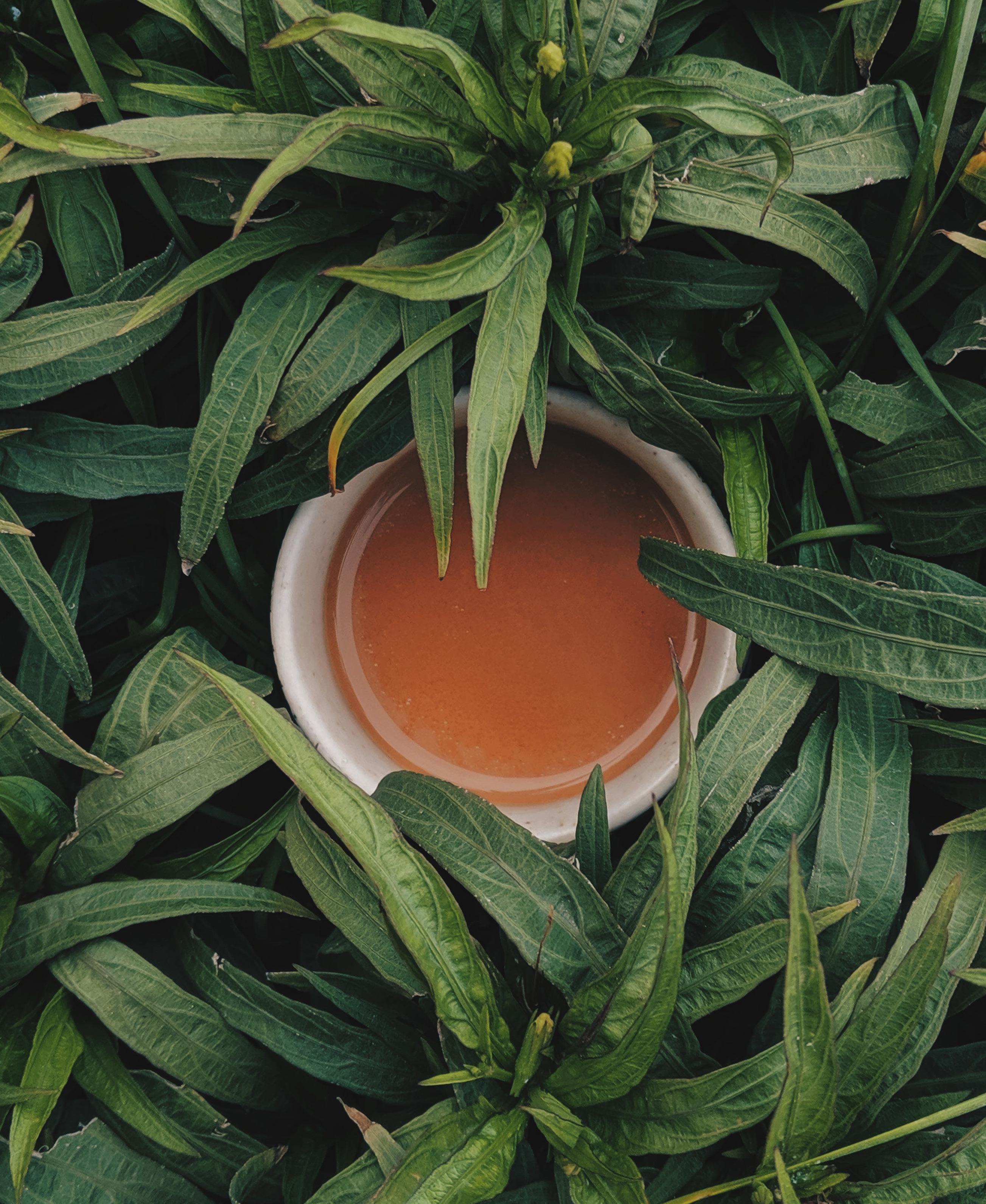Sustainability Report



When is a tea bag not just a tea bag? Ours are so much more: Each envelope is a nexus of passion, art, commerce, tradition, innovation, and wellness, made for people and the planet we all share. We hope our little parcels of goodness bring you enjoyment to match the love, care, and passion that goes into making them, from crop to cup.
In last year’s Sustainability Report we established “Getting closer to the source” as a priority for the coming year. We said: “Finding exactly where our ingredients are coming from can be a challenge. It’s a priority for us to get down to farm level, however, and lift up our suppliers however we can.”
This year, as promised, we’re elevating our suppliers and sourcing because we believe there is enormous potential for a sustainability revolution that begins at farm level. Regenerative farming — an approach that protects, preserves, and restores the land — is our priority, and we will be sharing stories of what that looks like in the coming pages. We hope that knowing a little bit more about the people and places behind our world-class teas deepens your connection to, and enjoyment of, every cup you drink.
Thank you for joining us on this journey. You might be a tea drinker, interested in learning more about the beverage you enjoy. Maybe you’re in the tea business and curious to see how we’re doing things. Or perhaps you’re one of the growers featured in this very report, looking to see how we collaborate with other producers like you. Whoever you may be, you are welcome here, and we hope you find something in these pages to inspire you.
Be
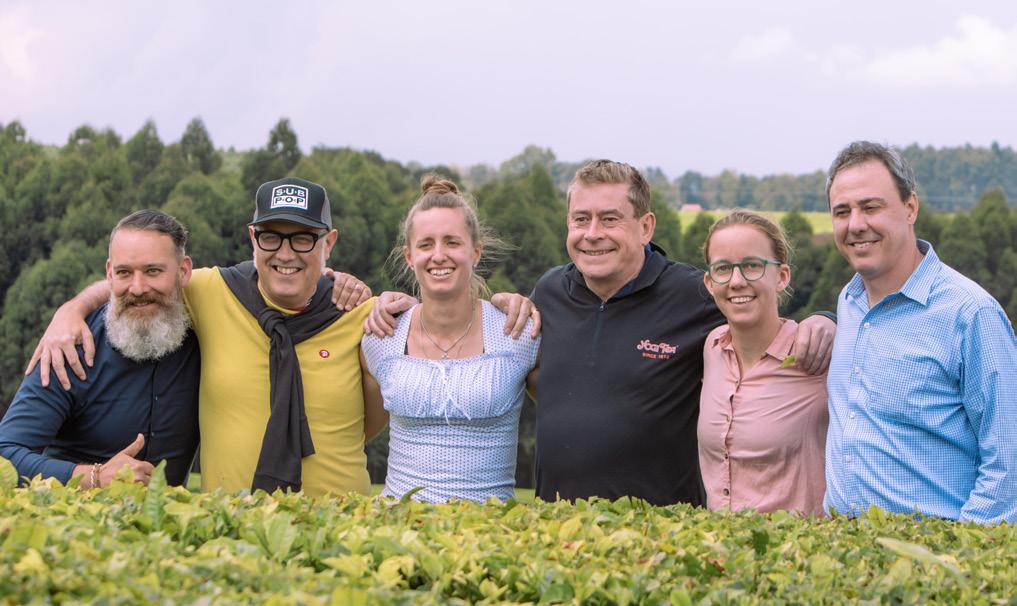
well, Yogi Global Sustainability Team
We are the well-being company.
This report summarizes the sustainability efforts of three united companies: East West Tea Company, representing Yogi Tea and Choice Organics in the US; Yogi Tea GmbH, representing Yogi, Yogi Tea, and Choice Organics in Europe; and TeaPak, manufacturers of our teas for European markets.
We are a company, but we are also a community. One that stands for passion, sustainability, and conscious living. A community that creates inspiration, positive impact, and space for wellness and care.
Sustainability is fundamental to everything we do. We move in rhythm and relationship with nature. We intentionally give more than we take. We consciously source botanicals, spices, and teas, and collaborate with the people in our supply chain to improve the local environment.
Many sustainability reports focus exclusively on a company’s environmental footprint. By emphasizing sourcing, we reveal the human handprint that defines our tea.
The most impactful thing we can do as a tea company, to ensure your wellness and the wellbeing of the planet, is to carefully source our ingredients. The teas, spices, and botanicals we purchase are the foundation upon which our reputation is built. It is our privilege to share the stories of the people and places that make our teas so special.
Ultimately, our sustainability goals are to maximize our positive impact and become a regenerative company, one that actively improves the places we work in. The opportunity at farm level is extraordinary, and it is here that the seeds of regeneration must be sown.
A tea envelope is a small miracle: a curated assembly of intentionally chosen, carefully grown ingredients from all over the world, expertly blended, thoughtfully packaged, and now in your hands and ready for brewing. We hope joining us on this tea journey, introducing you to our partners and sharing their stories, will give you a reason to smile the next time you peruse our lists of ingredients.
Farmers are an integral part of the tea community, and we want their voices to be heard. We reached out and asked about their sustainability practices, using our platform to share their stories with the world. All the quoted material in what follows came directly from our suppliers themselves.
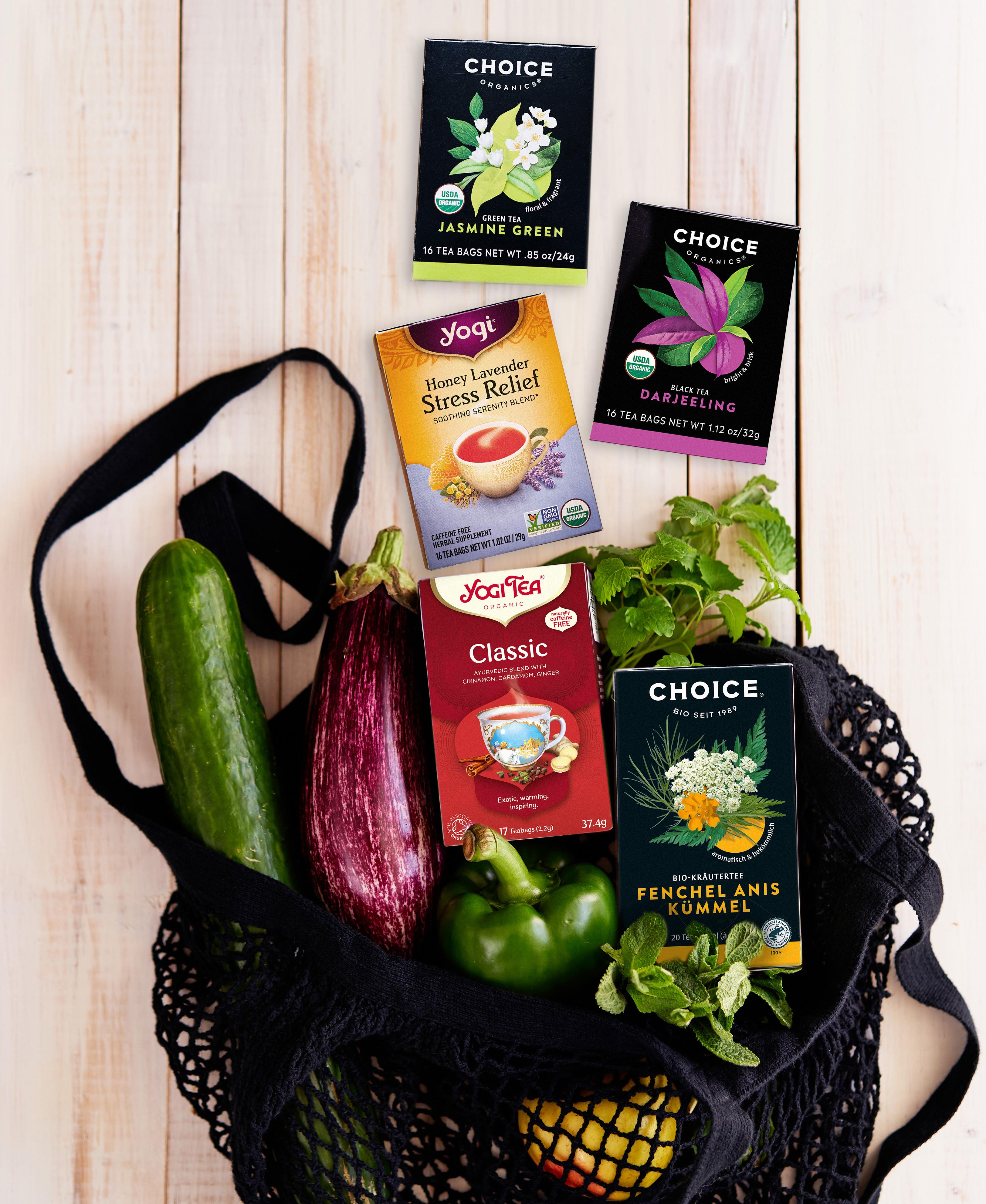
Ingredient: Organic and rainforest alliance certified single estate rooibos
Location: Northern cederberg mountains, South Africa
Years Operating: 15 Years
Supplying us: 1 Year
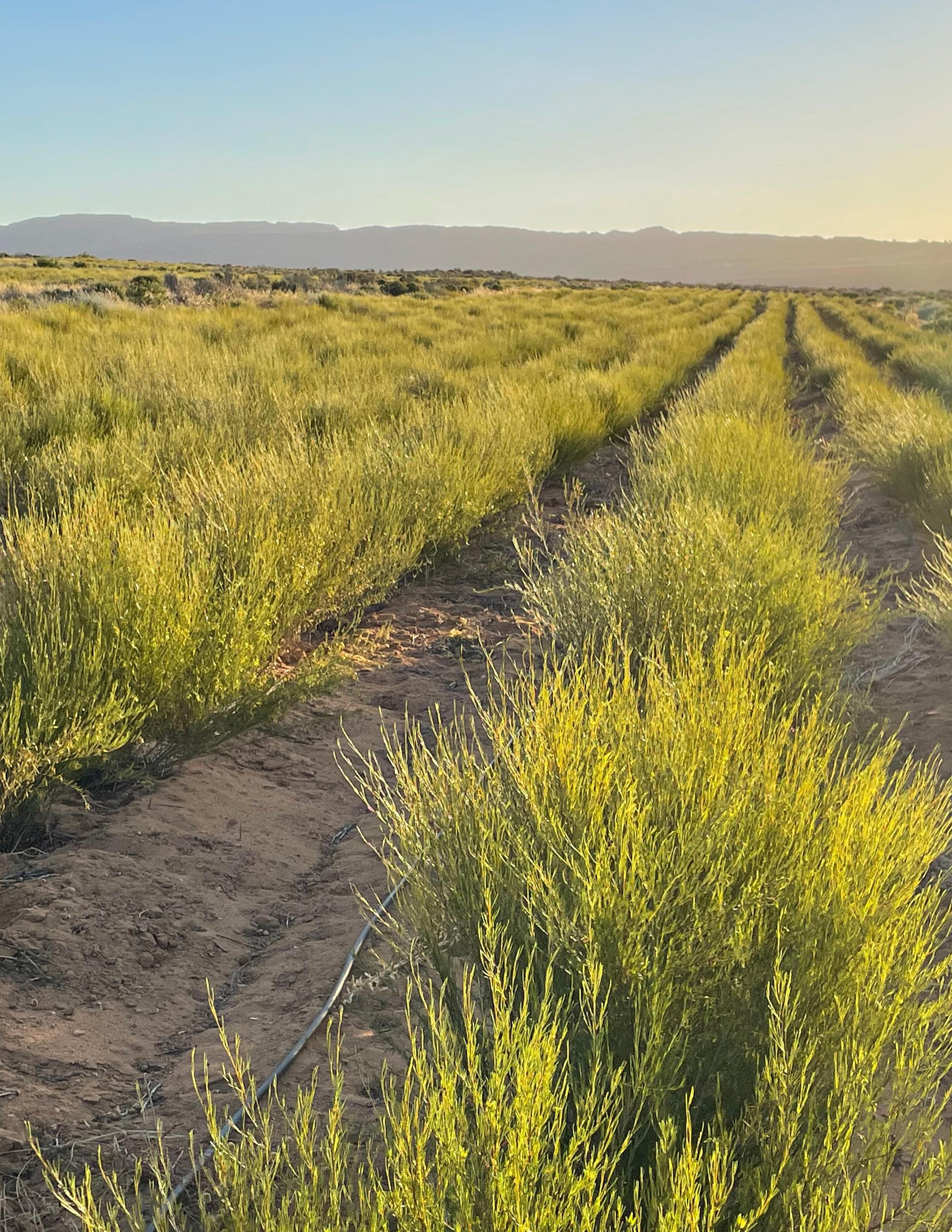
What do you get when you cross a creative spirit with a steadfast commitment to sustainable farming? Some of the best rooibos on Earth.
“We started as an organic certified farm from the get-go. It was an obvious practical, moral, and commercial choice. For us, rooibos naturally lends itself to organic production, particularly because our farm is situated within the indigenous home of rooibos.
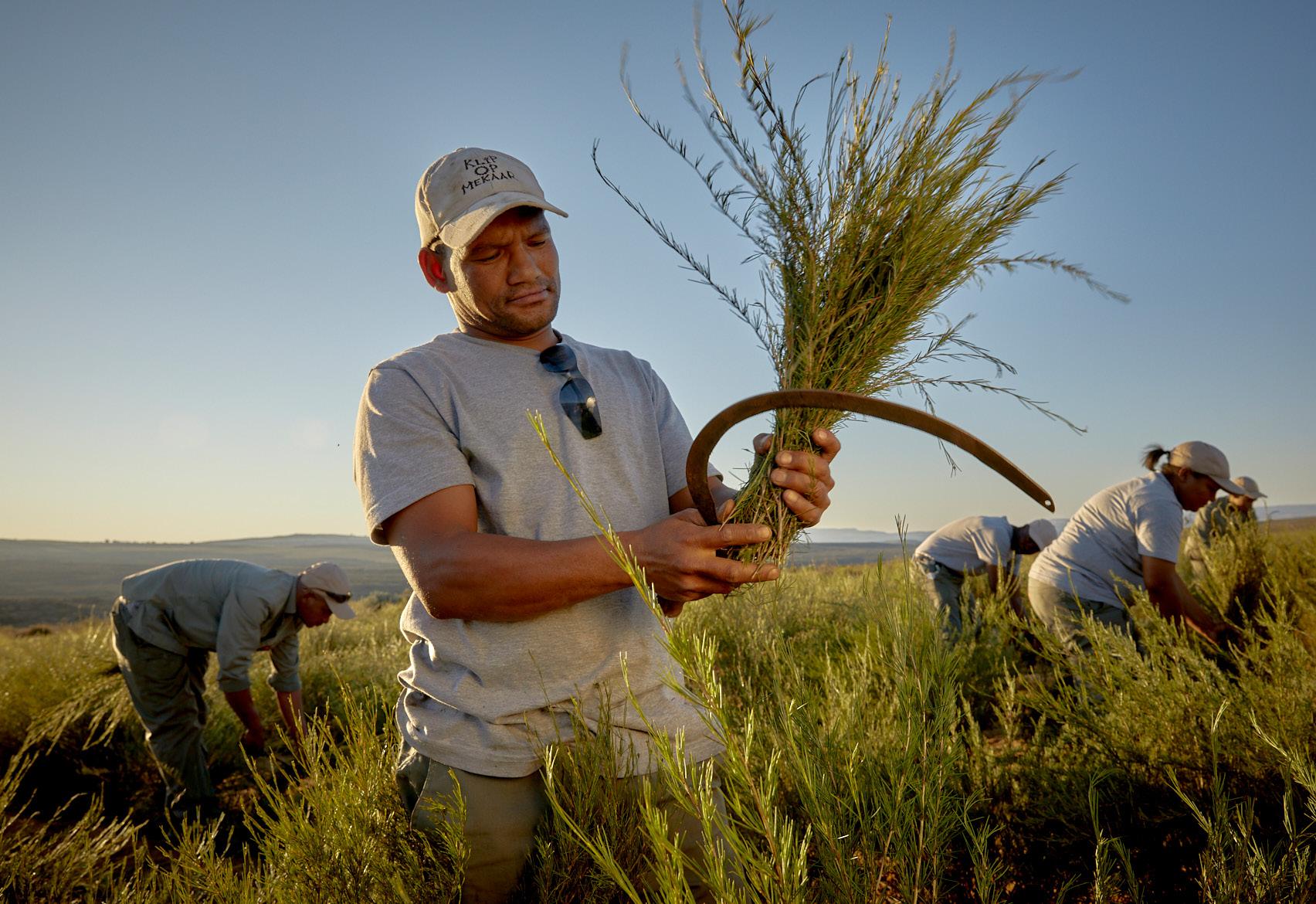
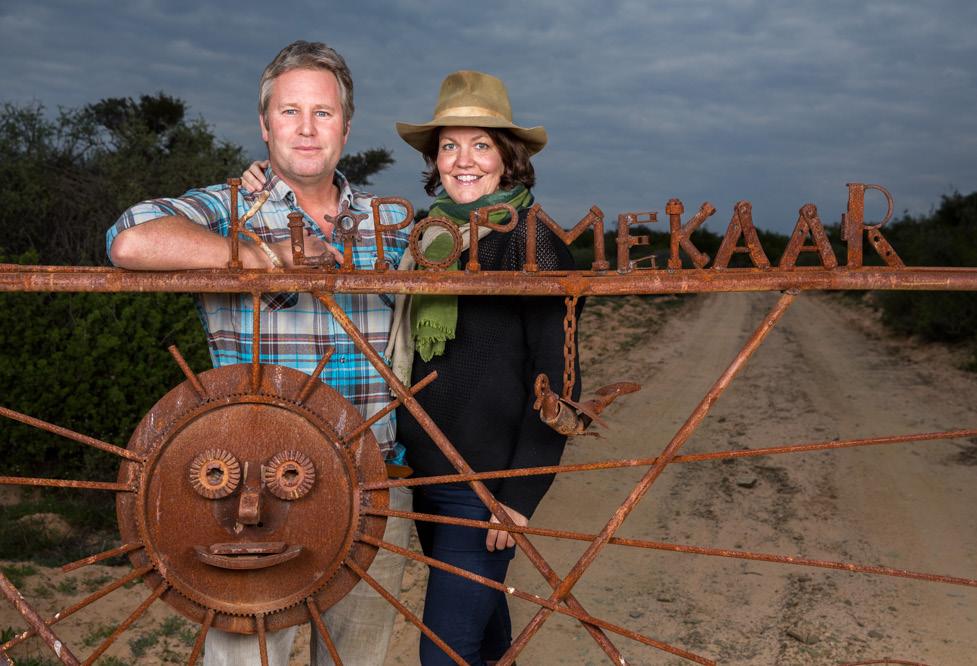
Klipopmekaar is a family owned and managed business. Our family started farming rooibos in 2007, acquiring 6,000 hectares of pristine Cederberg Mountain wilderness with excellent terroir for high-quality production. In 2008, Klipopmekaar became one of the first independently certified organic rooibos farms.
We proudly hold a wide range of organic certifications to supply European, North American, and Japanese markets. In addition, all our organic rooibos is also certified by Union of Ethical Biotrade and the Rainforest Alliance.”
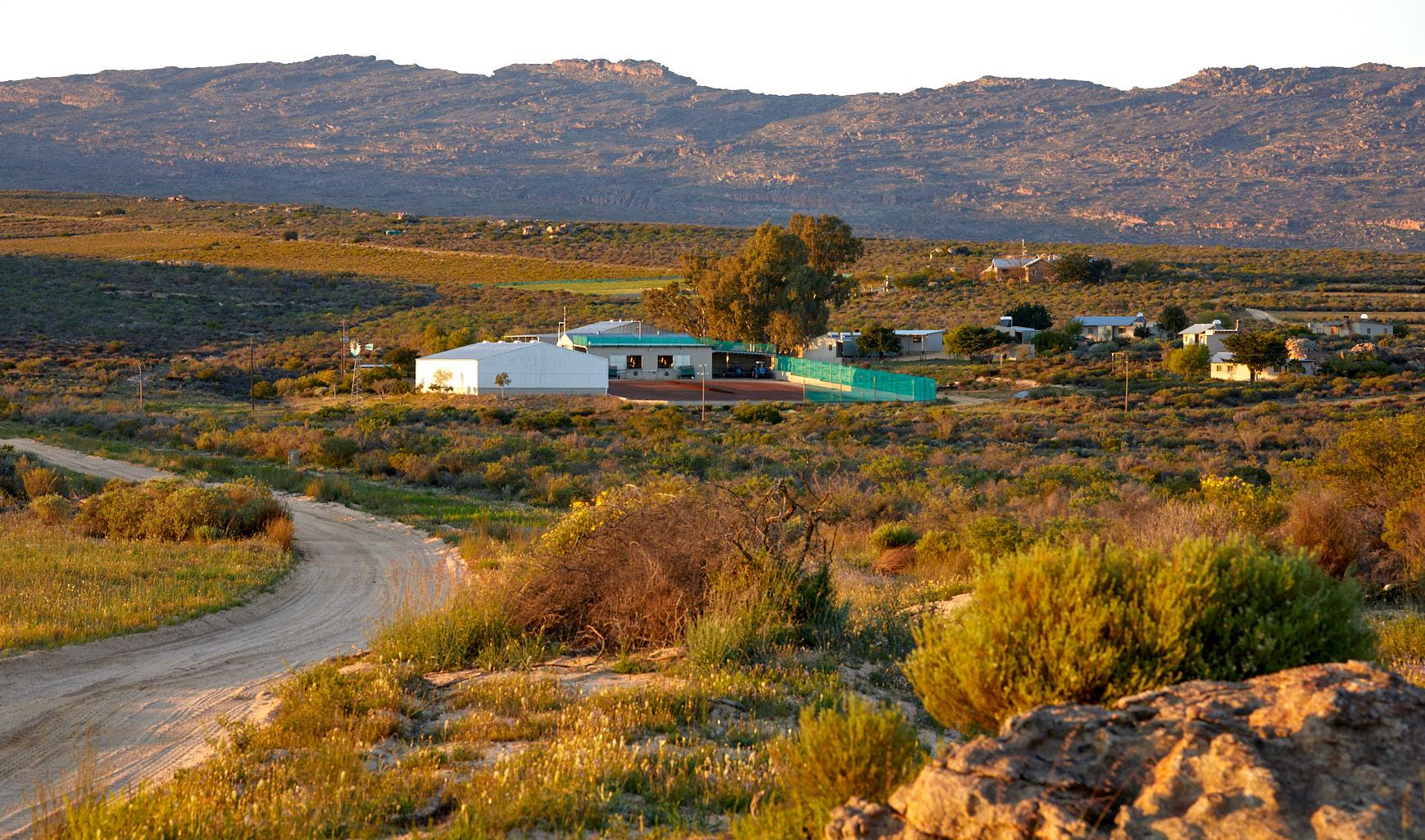
While modern rooibos dates back 300 years, this herb has been known to the First Nations People of South Africa for millennia. A uniquely South African ingredient, rooibos enjoys Protected Designation of Origin status in Europe.
“Our family’s approach to the land we farm, our co-workers, and our business, aims to be sustainable, inter-generational, and long term. We see people, planet, and profit as intrinsically connected and interdependent. We value learning and continuous improvement. Key areas of sustainability focus for us include irrigation and climate change, regenerative agriculture, reducing carbon footprint, and high-quality tea-making.”
Nestled in the Northern Cederberg region of South Africa, the ancestral home of rooibos, Klipopmekaar uses progressive farming techniques to keep this ancient tradition flourishing.
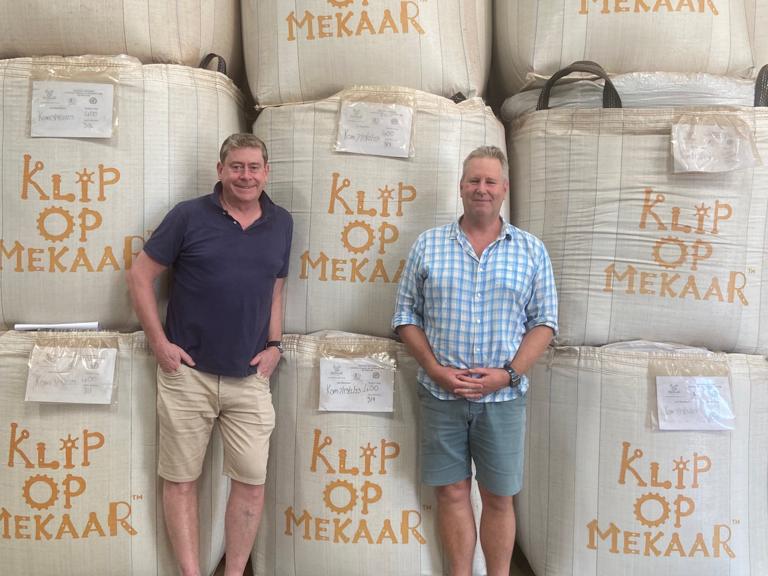
“The entire rooibos production region has always been highly drought affected. Layered over the short-term cyclical variability is the longerterm impact of climate change: a progressively dryer and hotter climate for the entire rooibos production region.
To tackle these challenges, our focus has always been on building healthy living soils that retain more moisture. This is achieved through practicing no-till regenerative agriculture methods designed to build healthy living soil and working to increase (and trap) soil carbon/ organic matter.
Our other major focus is the supplementary irrigation of rooibos, and we are industry pioneers in this field. Our drip irrigation systems are all designed for the very long term; they’re green and sustainable, 100% solarpowered, closed-loop, and generate negligible evaporation. These systems enable us to carefully supplement shortfalls in precipitation (annually and/or seasonally) with excellent quality water and mitigate the negative effects of drought and (hopefully) climate change too.”
Klipopmekaar shares their spirit of creative freedom and conscientious expression in everything they do, even outside the rooibos fields.
“Richard Bowsher is one of the Founders of AfrikaBurn. Inspired and endorsed by Burning Man (held in the USA), AfrikaBurn is a not-forprofit, freedom of expression, and creative arts festival which is held annually nearby in the Tankwa Karoo.
Together with friends, co-workers and family, Richard and Karin Bowsher frequently produce various sculptures and functional creative items from recycled steel, recycled materials, and old agricultural objects found on the farm.
None of the art created is for sale. The emphasis is simply on all having fun together and exploring creativity in the beautiful Klipopmekaar wilderness.”
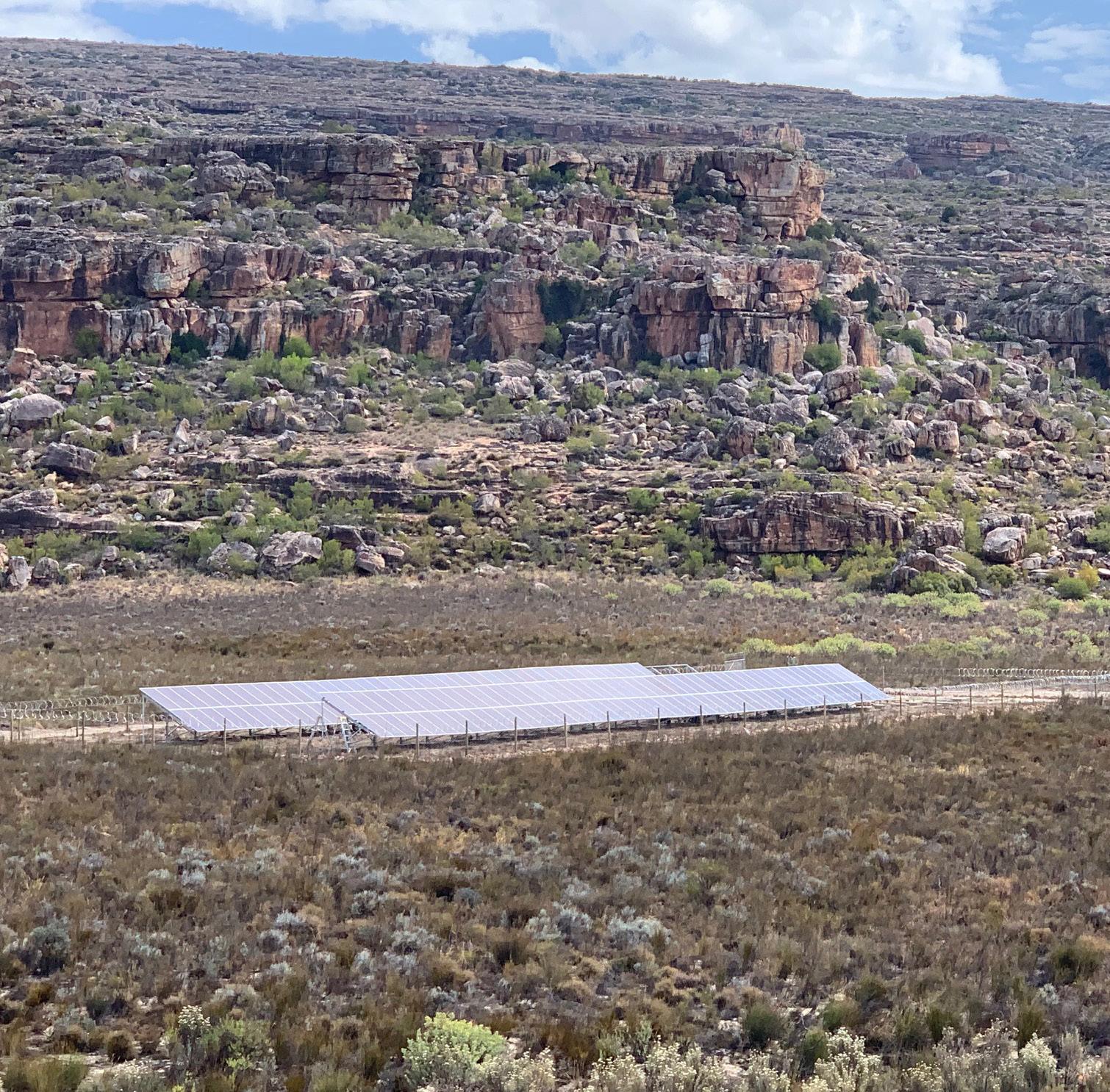
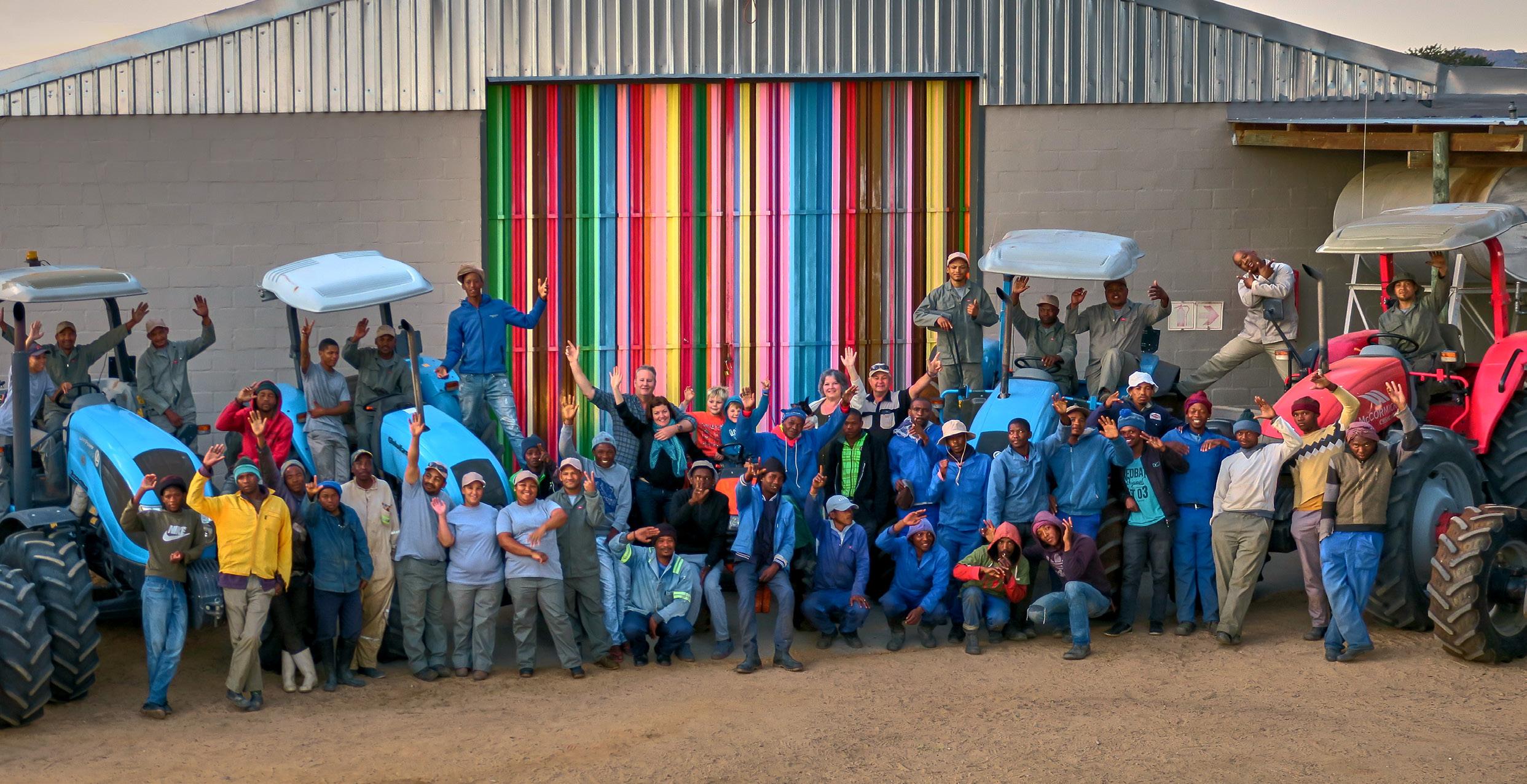
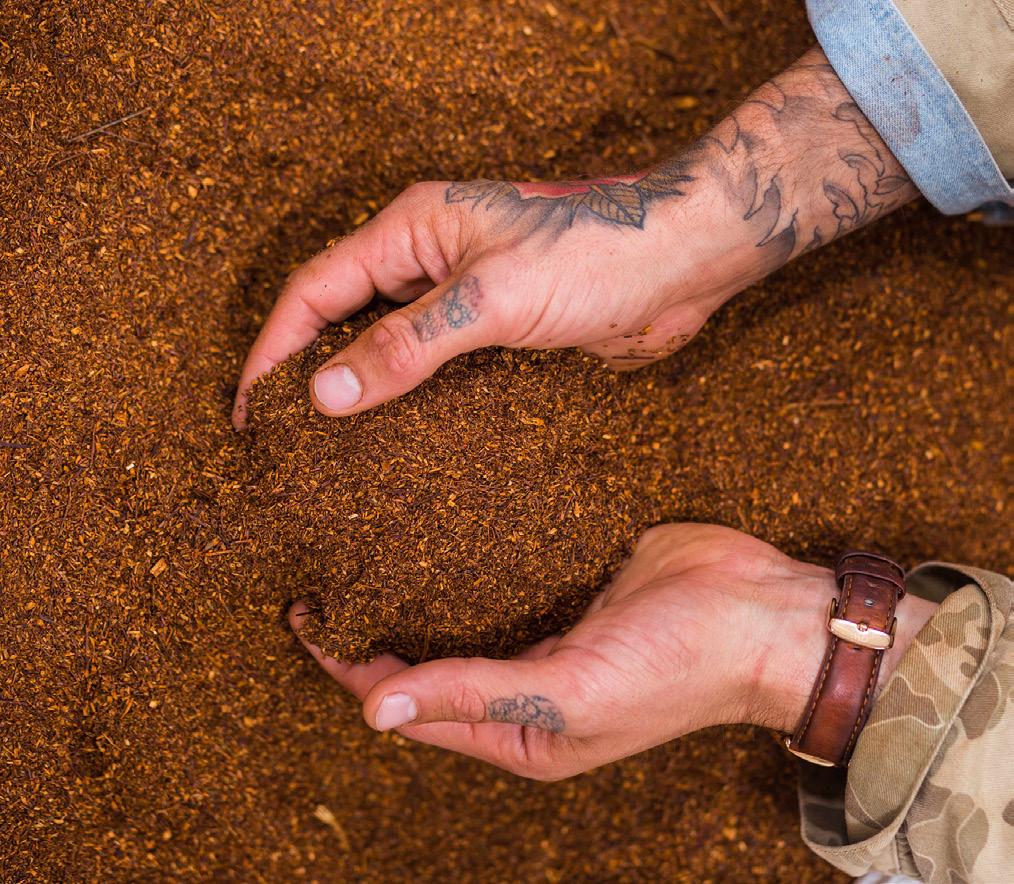
Who: Yogi, in partnership with Jacarandas International
What: A project helping 510 farming households boost their incomes while fighting deforestation
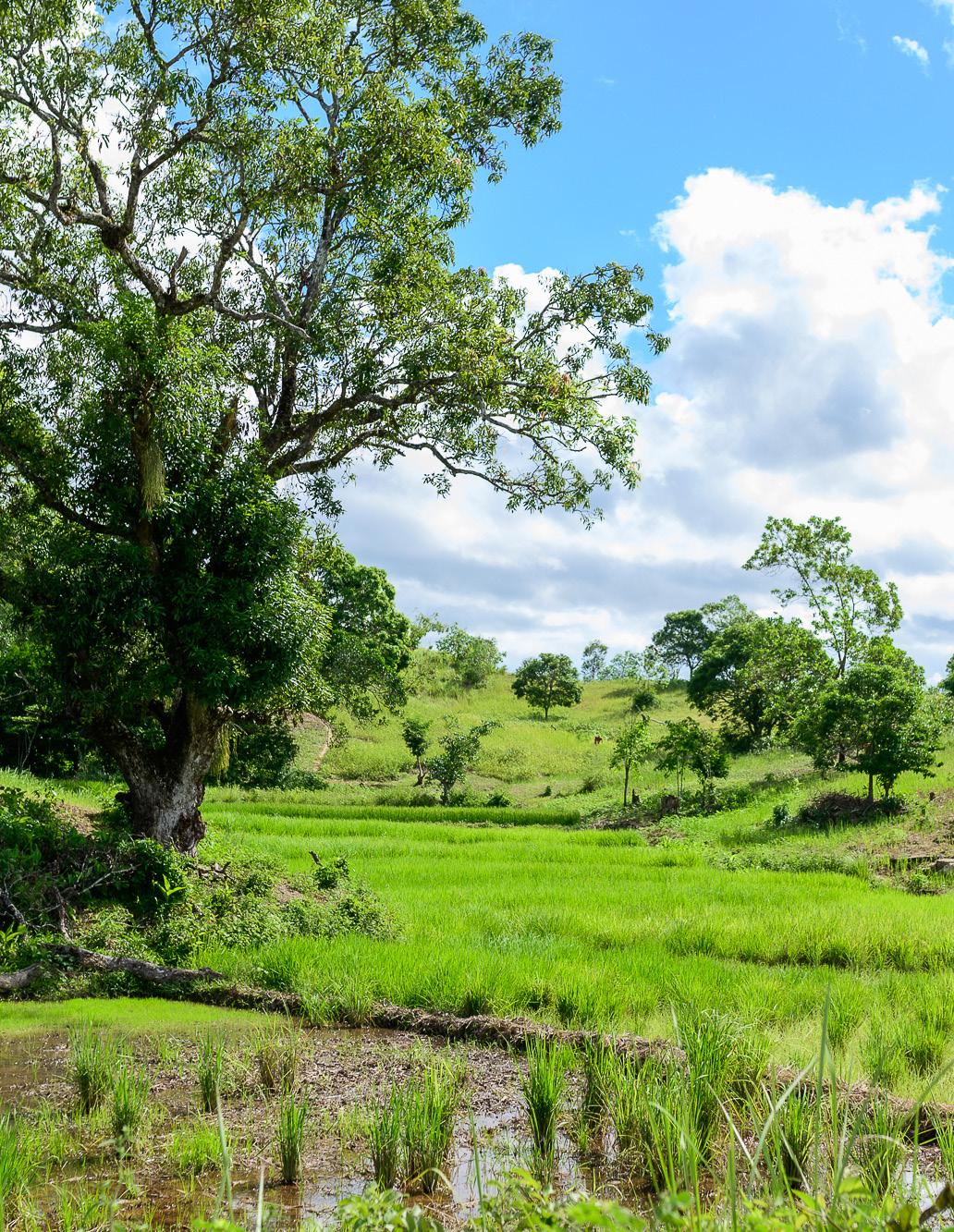
When: April 2022–March 2024
Where: The Manakara region of Madagascar
Ingredients become aid by helping to support reforestation efforts in Madagascar’s incredible wilderness.
Why:
To preserve Madagascar’s incredible biodiversity and help farmers diversify their income
How: Building two nurseries to incubate cinnamon, clove, and indigenous tree species, distributing the saplings to farmers, and sharing how to harvest and maintain these new trees
Don’t let Madagascar’s small size fool you: It hosts more than 250,000 different botanical and animal species – a full 5% of the world’s total.
All this rich diversity has come under threat, however, as unsustainable farming encroaches on forested areas and non-organic practices endanger wildlife. To fight this, a collaboration with Jacarandas International is providing farmers with the tools and training necessary to heal nature while giving their livelihoods a boost.
Our funding is supporting the construction of two tree nurseries that will produce cinnamon, clove, and native tree species. These trees will be distributed to farmers, who can use them to heal clear-cut areas. Training programs will then assist in the maintenance of these new productive trees.
It’s a win-win for humans and nature alike: Reintroducing spice-producing trees alongside native species helps ensure the return of biodiversity, while providing farmers support for their long-term income. With thousands of seedlings already planted, we’re making great strides!
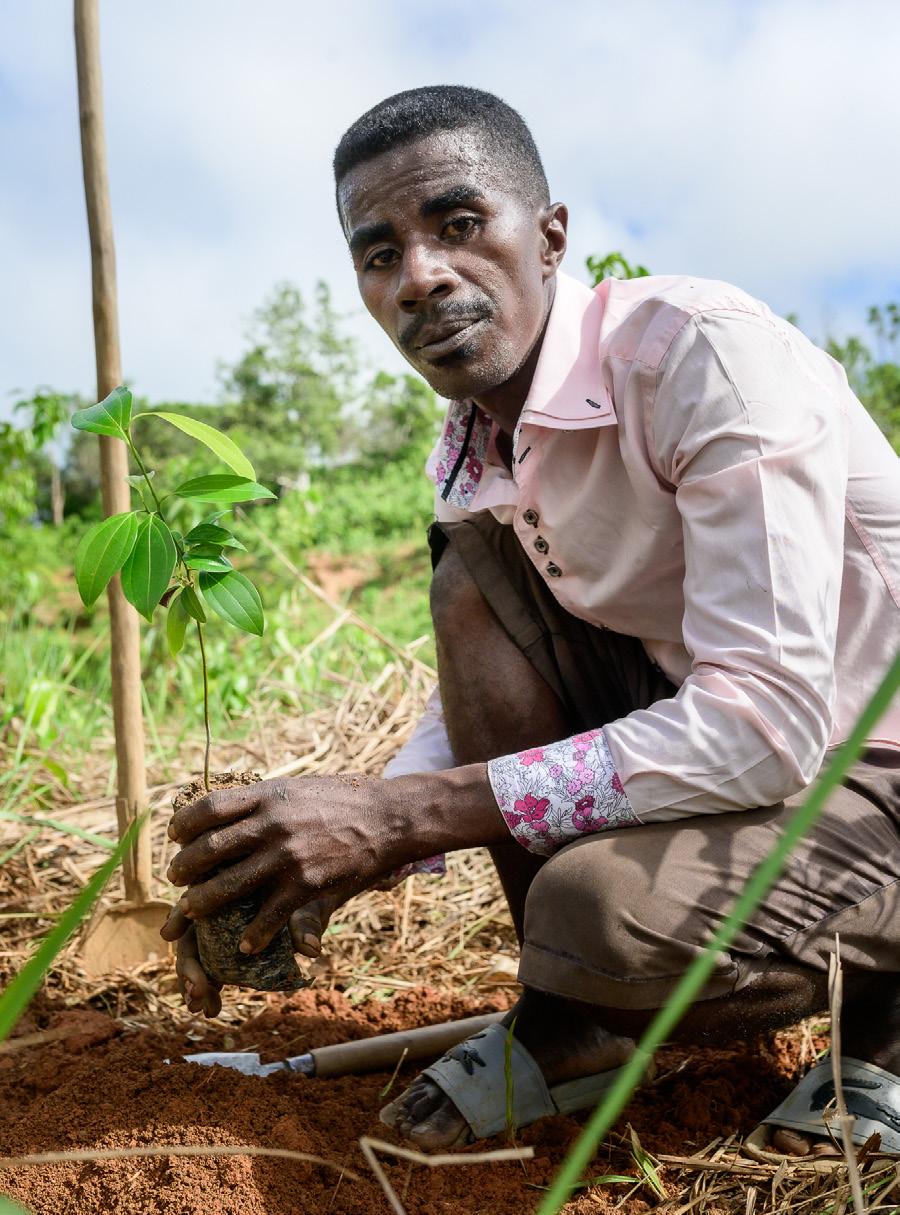
Our impact goals
Increase and improve the quality and quantity of 300 tons of dry cinnamon produced by local farmers.
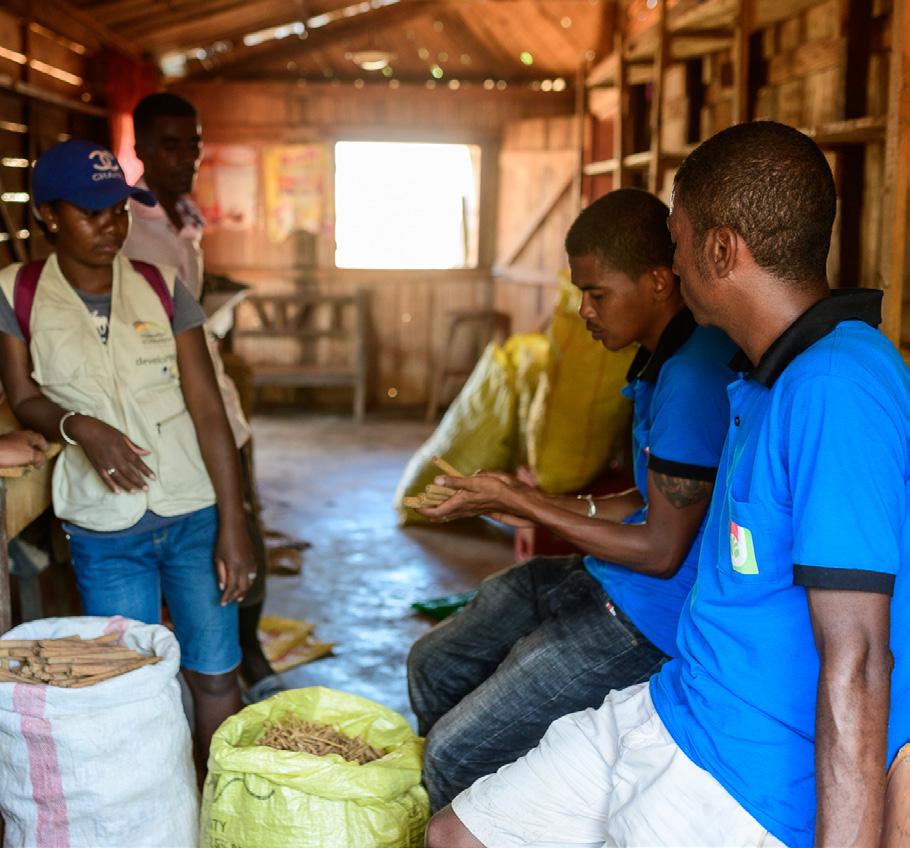
Increase 85% of smallholder farmers’ turnover by at least 20% by 2024.
Train 100% of farmers on postharvest, reforestation, and environmental best practices.
Plant 20,000 cinnamon seedlings, 10,000 clove seedlings, and 10,000 indigenous trees, including acacia and eucalyptus, over the course of 2023.
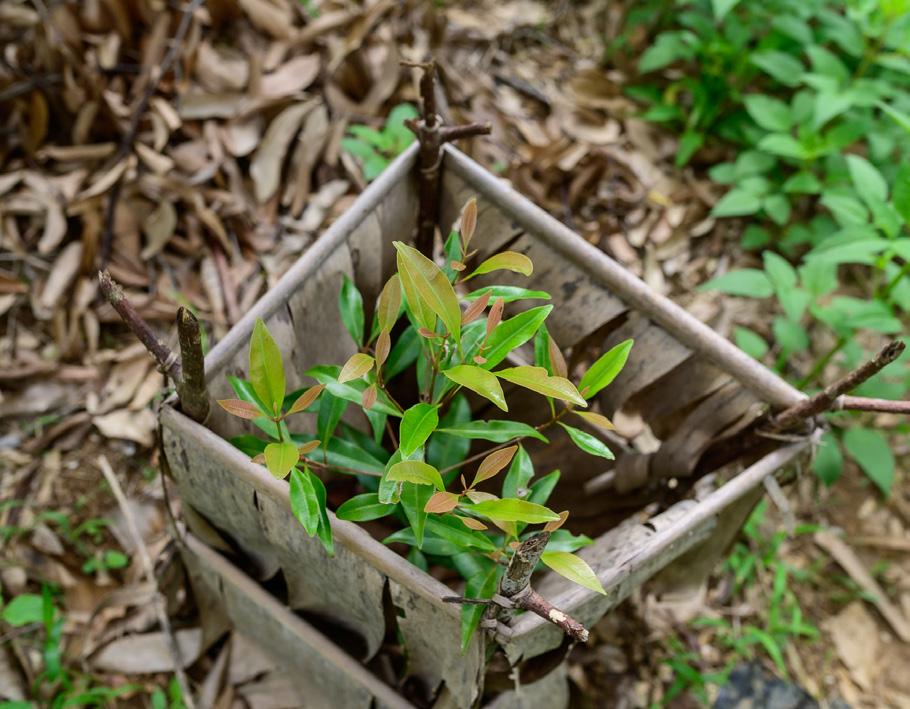
Who: Yogi Tea, Choice Organics, Sorwathe, and Practical Action
What:
The Porridge Project, which provides early childhood nutrition to smallholder farmers’ children, and a regenerative agricultural project, boosting farmer incomes and sustaining productive topsoil
When:
The Porridge Project collaboration started in 2020 and will run indefinitely, while our regenerative agriculture pilot runs from 2021 through 2023
Where: Hillside Organic Tea Cooperative, Rulindo District, Rwanda
Why:
Regenerative agriculture is a powerful way of helping people and planet simultaneously, while the Porridge Project improves health and well-being of local children
How:
Collaboration with suppliers like Sorwathe and implementation partners like Practical Action ensures that interventions are focused and impactful. Support from both Yogi Tea and Choice Organics enables a powerful coalition with considerable scope for doing good
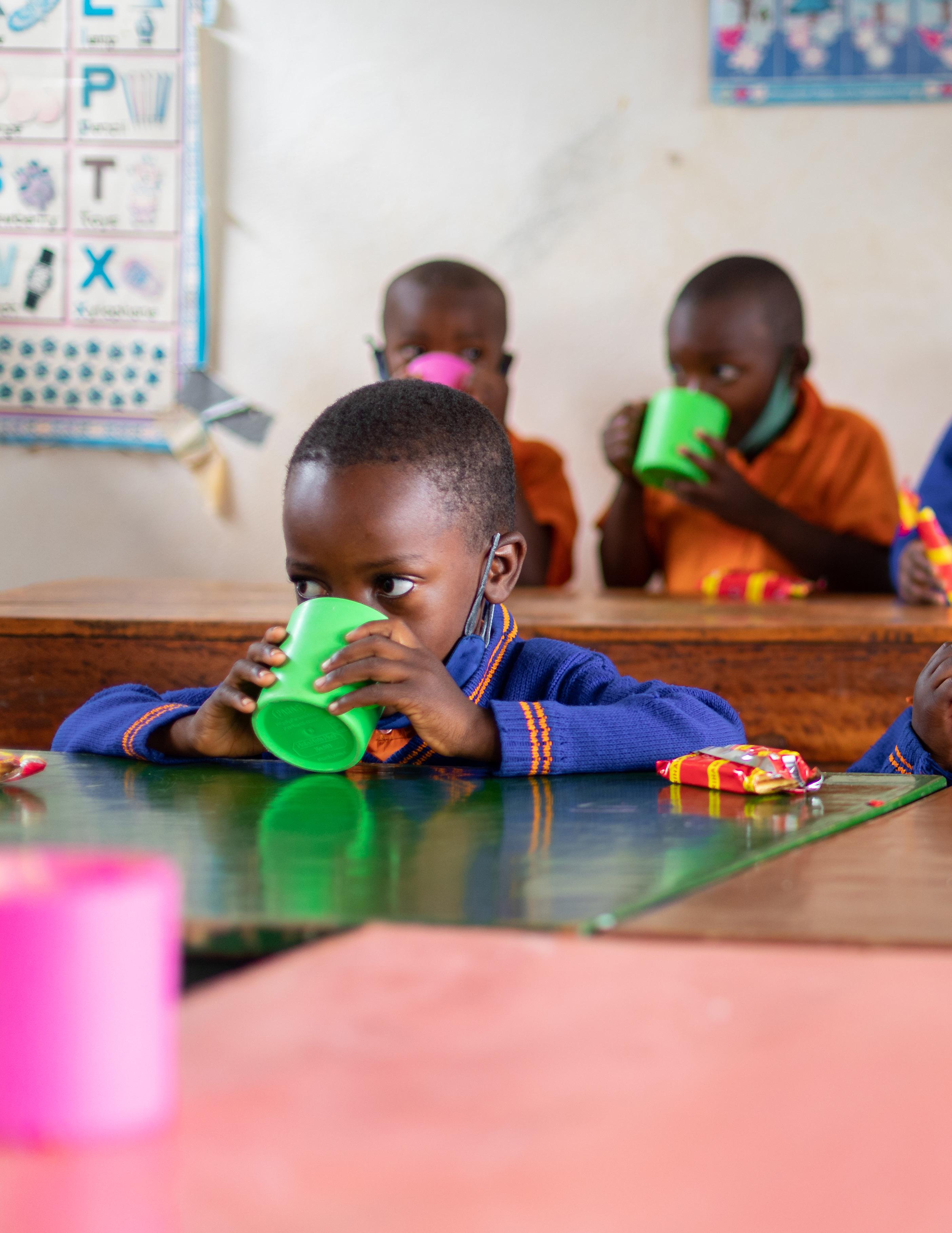
Two projects define our relationship with Sorwathe, a legend of sustainable African tea.
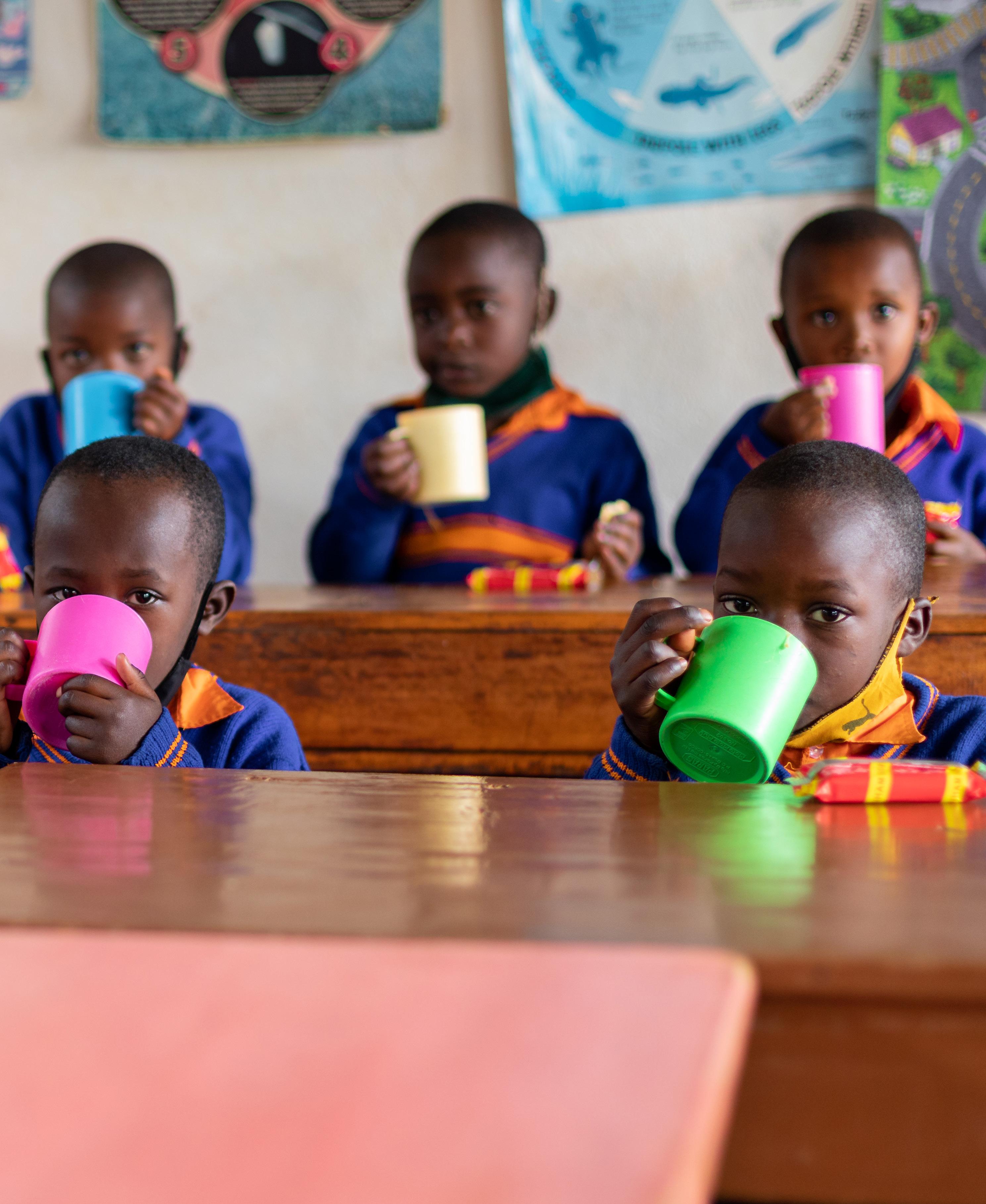
With 2,500 Rwandans employed in its factory and fields, Sorwathe earns awards from around the world for its ethical, sustainable business practices. They were pioneers in banning child labor, tirelessly advocate for workers’ rights, and are the first private Rwandan company to establish a collective bargaining agreement with workers.

Sorwathe’s factory produces approximately 4 million kilos per year of black, green, oolong, and specialty teas, 700,000 kilos of which are certified organic. Tea cultivation and processing provide cash and employment for about 6,000 people directly, while supporting the livelihoods of 70,000 community members indirectly.
Childhood malnutrition is a problem in much of the developing world. Sorwathe is fighting back: In April 2018 they began distributing servings of a specially formulated breakfast porridge called Aheza to nearly 1,000 children at daycare centers and preschools in their region. Aheza contains crucial vitamins and minerals to prevent malnutrition and foster healthy childhood development.
Only three months after the Porridge Project started, observers noted a dramatic drop in underweight malnutrition – almost 70% - as well as the complete eradication of severe underweight malnutrition. With the Porridge Project running, smallholder farmers’ children in Kinihira and surrounding communities get a warm meal every day, empowering them to play, learn, and grow healthy and happy.
In 2020, an opportunity arose to collaborate with Sorwathe on expanding the program. Every year since, we purchase a year’s worth of Aheza porridge for an additional 200 children, all under the age of 2. In 2022, we expanded yet again. We now provide critical early life nutrition for 1,000 Rwandan children every day, matching the 1,000 sponsored by Sorwathe.
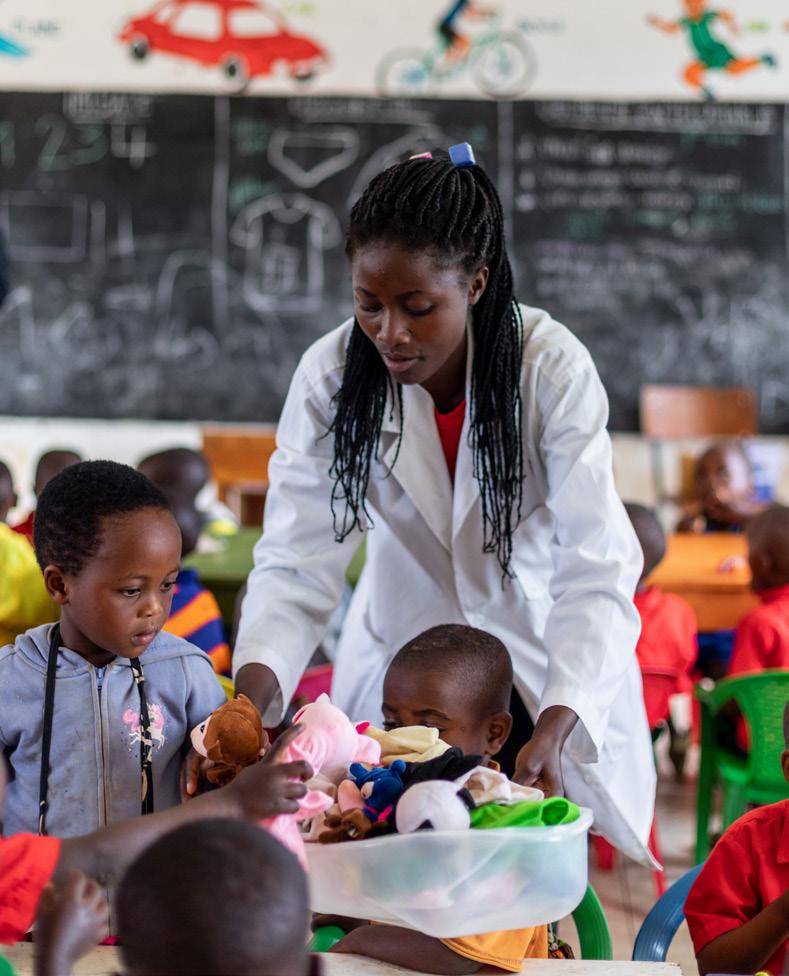
We believe regenerative agriculture is the future. Where possible, we strive to learn and employ new forms of farming that not only sustain, but actively heal and replenish traditional ecosystems. We partnered with Sorwathe and Practical Action to launch a regenerative pilot project that involves planting lemongrass among their tea bushes. Our goals: to preserve topsoil, replenish nutrient levels, and provide an additional income source for farmers to help insulate them from fluctuations in the tea market.
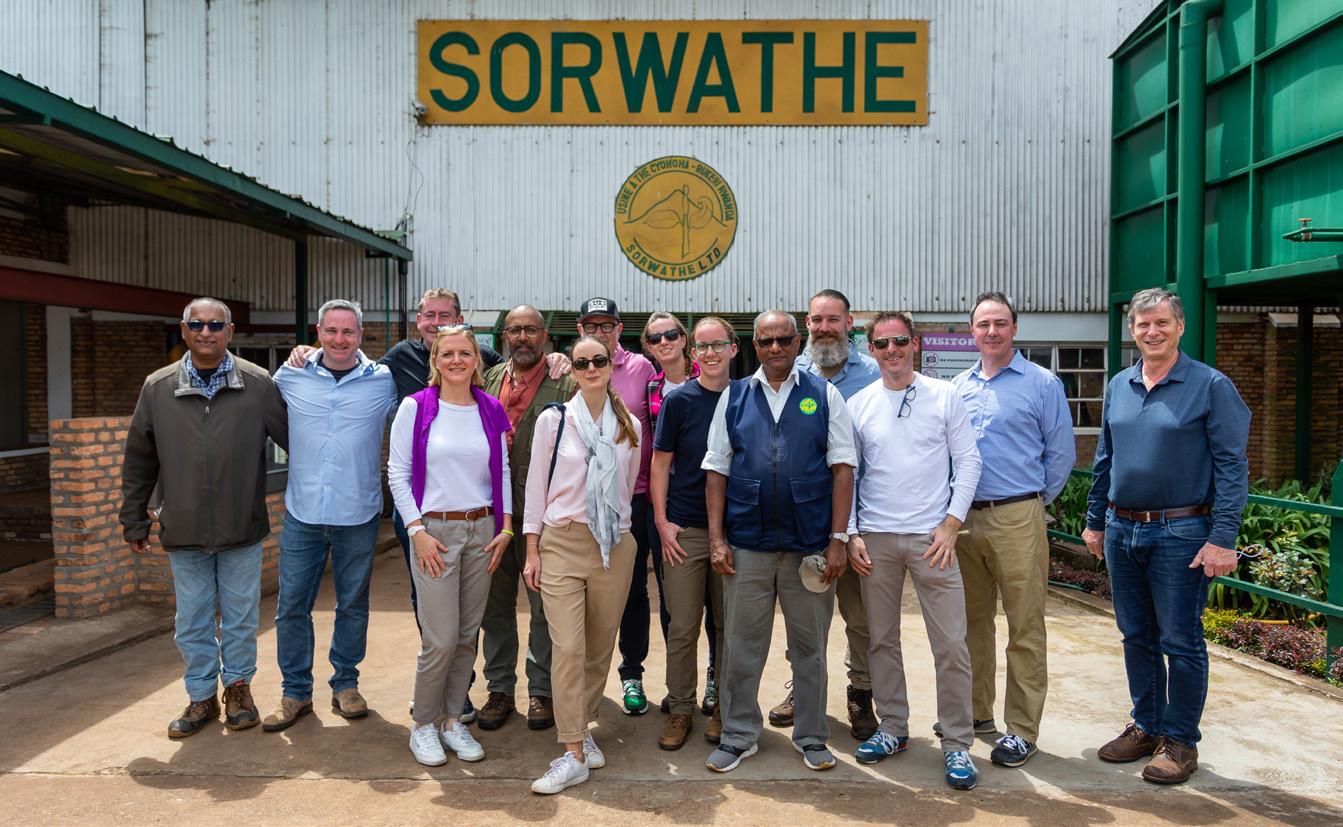

This project could have been a risky endeavor for farmers without a market for their new lemongrass crop. But we found a solution inhouse: Our Choice Organics brand already buys their organic black tea, and we have pledged that Yogi Tea will purchase their lemongrass.
In August of 2022, despite some seedlings not taking root and issues with drought, we were able to celebrate our first harvest of regeneratively grown lemongrass. Over the long term, these farmers will have a second income source, their topsoil will be protected, and we will be able to scale up and share lessons learned with other plantations in the region.
Beneficiaries of both projects include 65 farmers and 2,000 children.
After 3 months, observers noted a 67% drop in underweight malnutrition (from 9% to 3%).
Severe underweight malnutrition was completely eliminated during the same period.
Ingredient:
Lavender, liquorice, alfalfa, eucalyptus, carob, lemon balm, lemongrass, rosemary, thyme
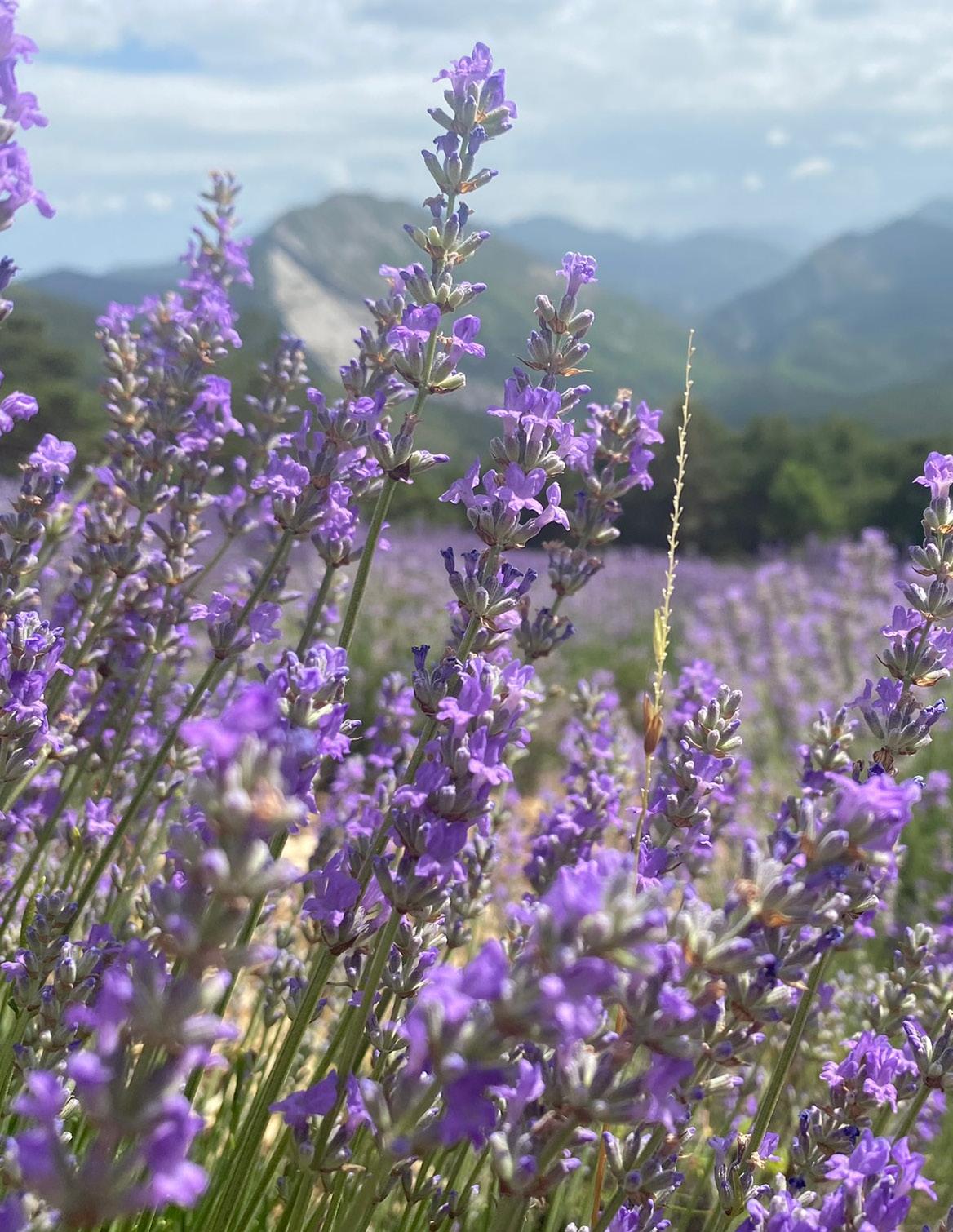
Location: Alicante, Spain
Years Operating: 36 years
Supplying us: Since 1995
An organic haven in the Spanish mountains
What started as a couple friends gathering mountain herbs has become one of Europe’s leading organic herb cooperatives, thanks to careful farming and high standards.
“We’ve been organic since the very beginning, even when the label did not exist here in Spain. The motivation was knowing about the negative consequences of applying chemicals to food.”
Herbes del Molí has been driven by a simple philosophy – respect what surrounds you – for over 30 years.
“We do our best to convert what comes from the land into the most consistent product you can find in your tea bag, regardless of the fields’ changes.”
When asked what they believe makes their herbs especially good, the response from the Herbes del Molí team is simple.

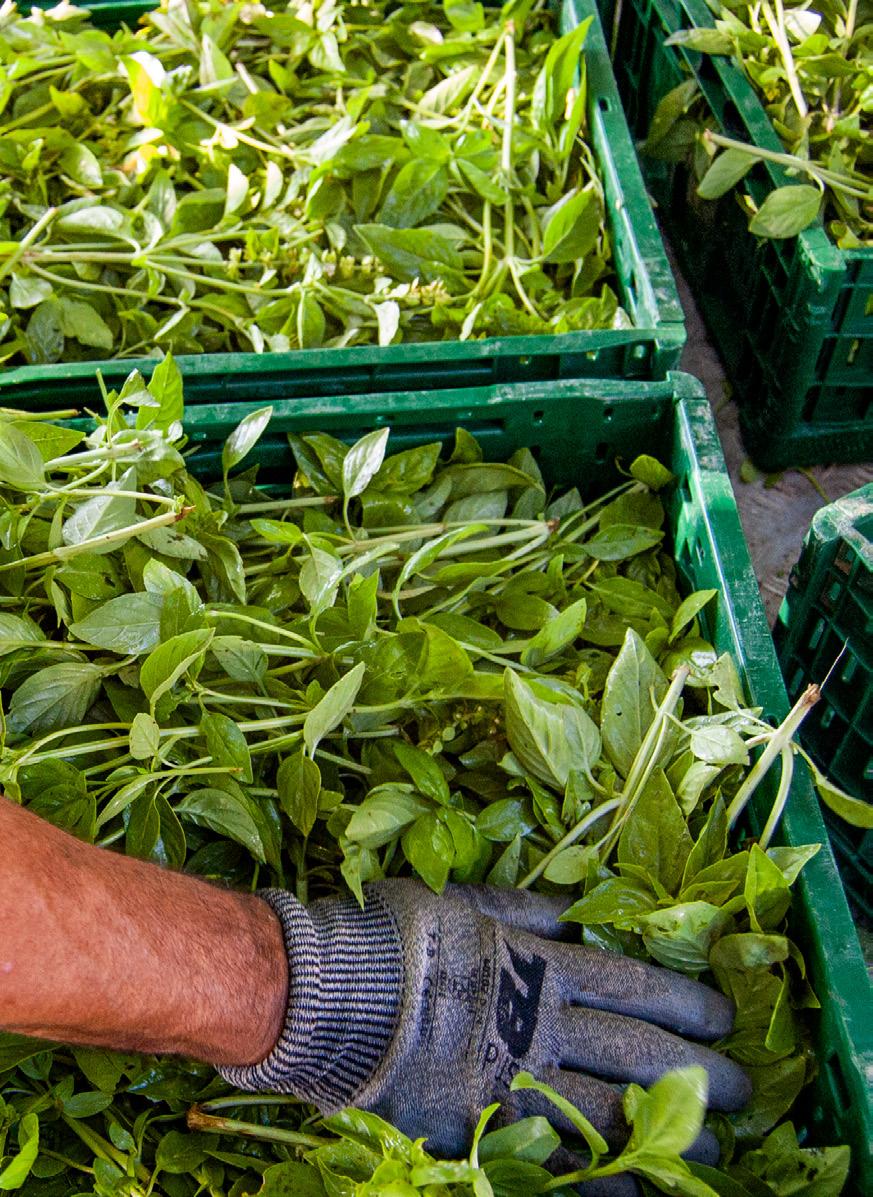
“All the love we put in them!”
From incorporating regenerative agricultural techniques to researching solar-powered drying facilities, the future looks as bright as the Mediterranean sun.
“The second generation of the family business is taking over. Three friends (two of them, a couple) started up collecting herbs in the mountain and now, the three daughters of this couple continue the magic of the story, each one supporting one area of the project. They are very aware about the importance of staying together and letting the essence of our origins stay strong.”
Ingredient: Peppermint, lemon balm, dandelion, nettle, lemon verbena, thyme, eucalyptus, guarana, alfalfa, hop, fenugreek, burdock, nutmeg, star anise, moringa, elecampane
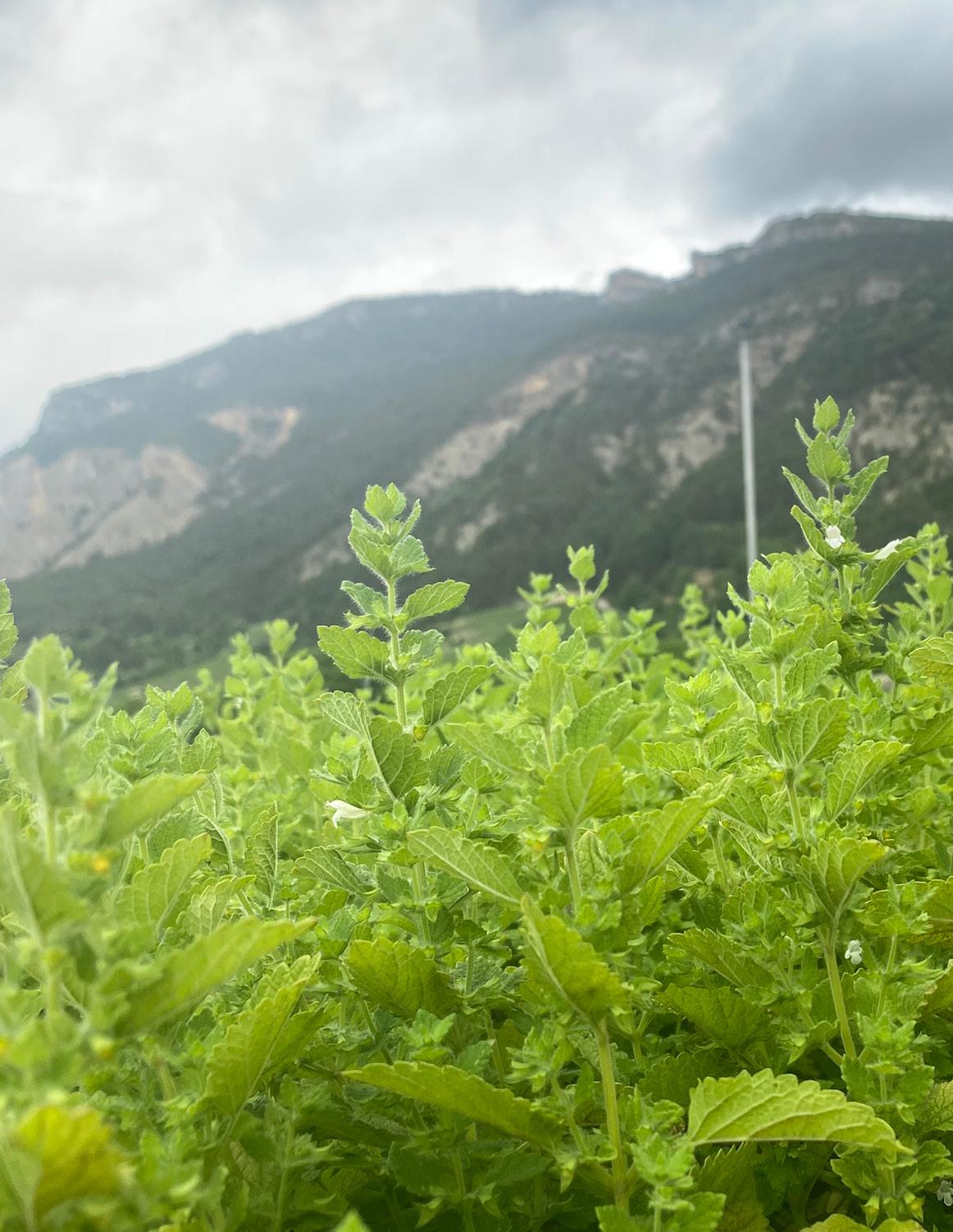
Location: Châtillon-en-Diois, France
Years Operating:
Since 1979
Supplying us:
Since 2017
We aren’t the only ones building community around sustainable herbs, teas, and spices. l’Herbier du Diois collaborates with likeminded farmers around Europe.
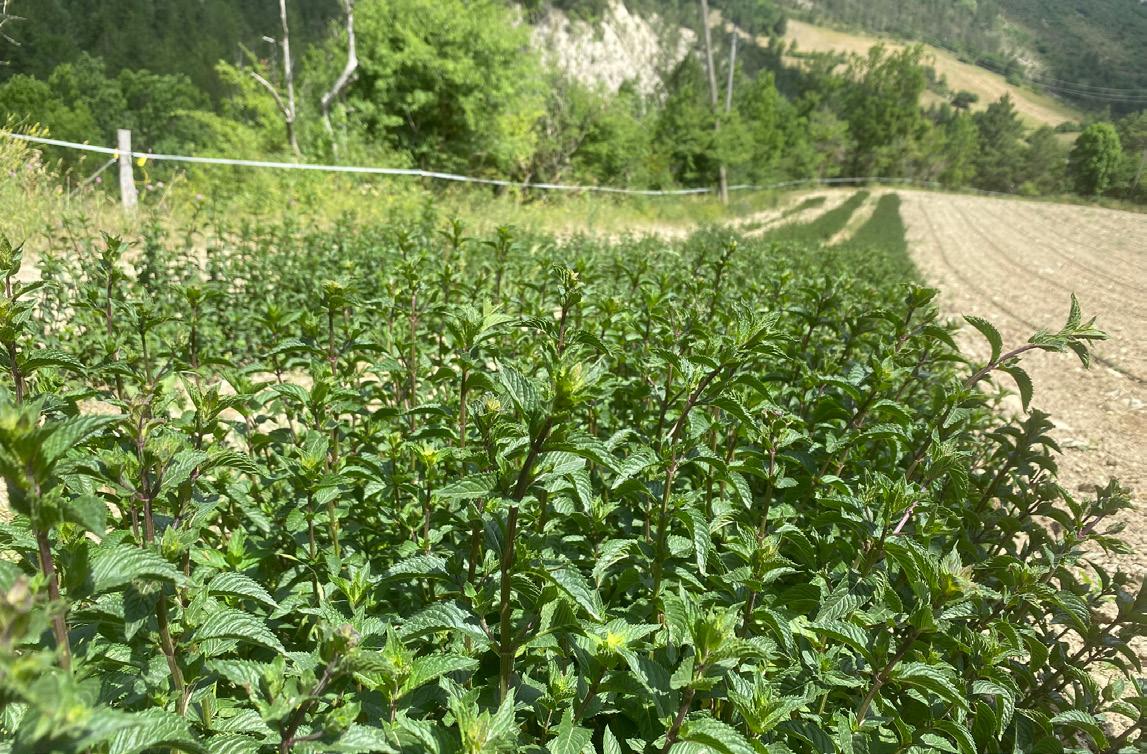
“Some of our plants come from our Demetercertified farm that we call La Croix. We also source from 350 suppliers (farmers and gatherers). This figure increases a little each year and the company is always happy to list new producers. We work directly with farmers, without going through intermediaries. Procurement from France represents 1/3 of our annual purchases.”
A holistic approach, incorporating facilities, land, plants, and people, enervates the entire business.
“From an agronomic point of view, we take particular care to ensure that crops and livestock complement each other, especially by turning our cows’ manure into compost, which enables us to fertilize the soil naturally. It permits us to be almost independent of industrially produced fertilizers, even organic ones.
Also, the diversity of crops in each growing area is important to us. In some places, the aromatic fields are close to meadows, heathlands and forests where our cows graze. In some others, we cultivate aromatic plots close to cereal, alfalfa or other forage fields, which themselves are surrounded by hedges and forests. We also try to make our whole system sustainable for the people working here.”
Not only does l’Herbier cultivate sustainably on their own land, but they also source from and support likeminded farmers in their network:
“Sustainability is how I can live and work serenely. It means being sure that I manage to bring the crops to the end of their cycle, with good quality and a good yield. It also means getting out of monoculture, which from an economic and ecological point of view makes no sense. Finally, sustainability allows you to live from your work, generate an income, and be able to farm over the long term.”
“We run the first organic hop farm in Poland. Before that, my dad grew hops and even before that, my grandfather, but they were conventional farms.
Now, on our farm, we use only natural means for growing our hops, which are approved for use in organic farming. We produce many of these products ourselves, including plant extracts, preparations with beneficial microorganisms, and compost. Our cultivation is a closed cycle, meaning that all crop residues after harvest are composted and returned to our fields.”
From a building naturally cooled by a straw roof to a 4-day, 35-hour work week for employees, l’Herbier’s whole operation is built with sustainability in mind.
“Organic farming practices make more sense to me because they require us to understand the agricultural system as a whole. They permit us not to be dependent of industries producing fertilizers and pesticides, and which are also big energy consumers.
Spreading of compost long before harvest, hoeing and weeding with a lot of attention to take out all the possible weeds, harvesting in good weather conditions… We know that the plants we produce will finish in you cup of tea, so we try to produce them with the highest possible quality!”
Ingredient: Sage, lemon balm
Location: Vettweiß, Germany
Years Operating: Since the 16th Century –or earlier!
Supplying us: 2 years
Sustainable herbs and generational stewardship in the German countryside
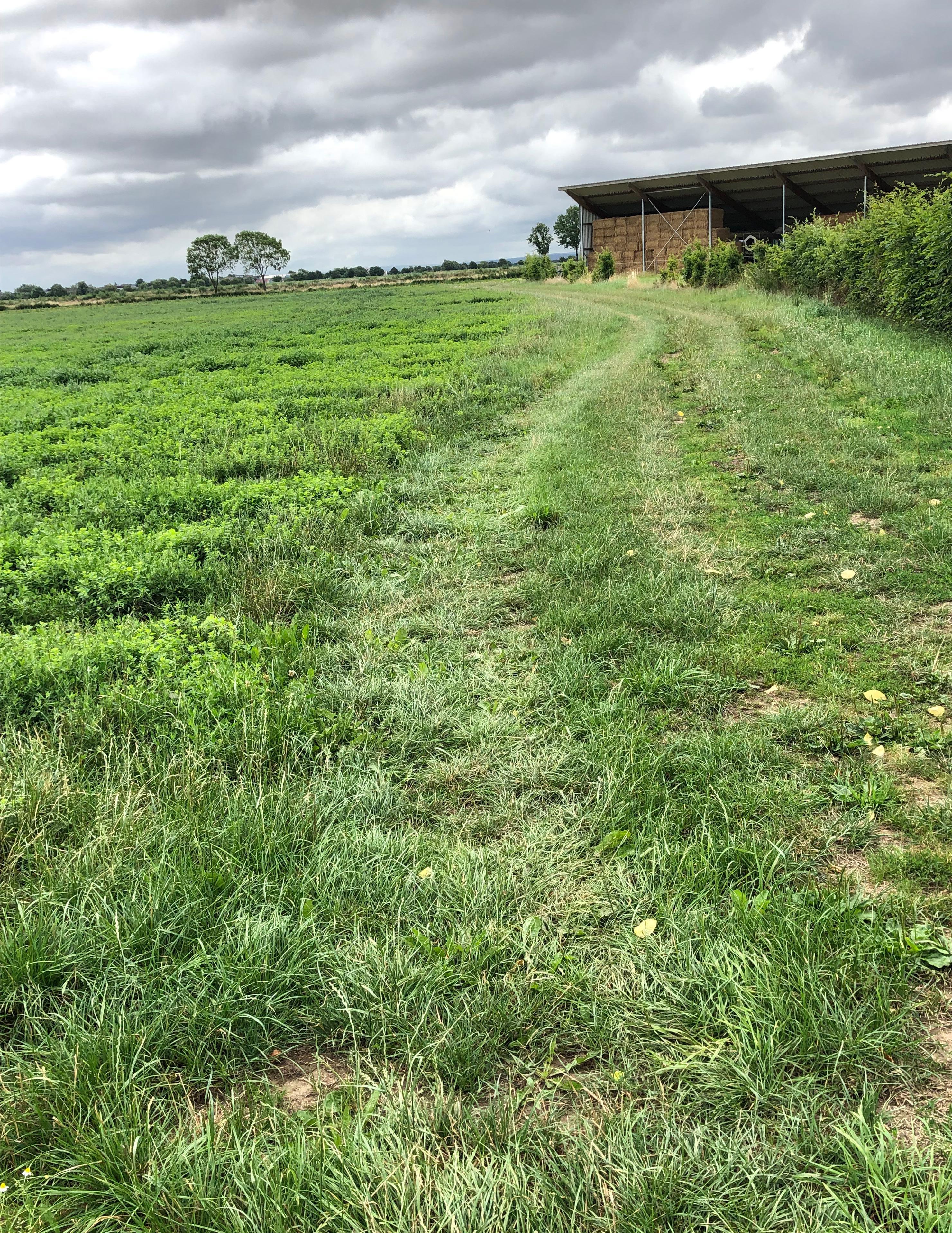
Daniel
“Hello! My name is Daniel. I am a farmer in Germany. Together with my whole family we are running a farm specializing in herbs. At this moment, we are in a transition to the next generation, and I am following up from my dad. Now I am looking forward to running the farm until I can pass it on to the next generation.”
Climate change is a challenge everywhere, and Germany is no exception. Farmers like Daniel work hard to keep their footprints light and their farms resilient.
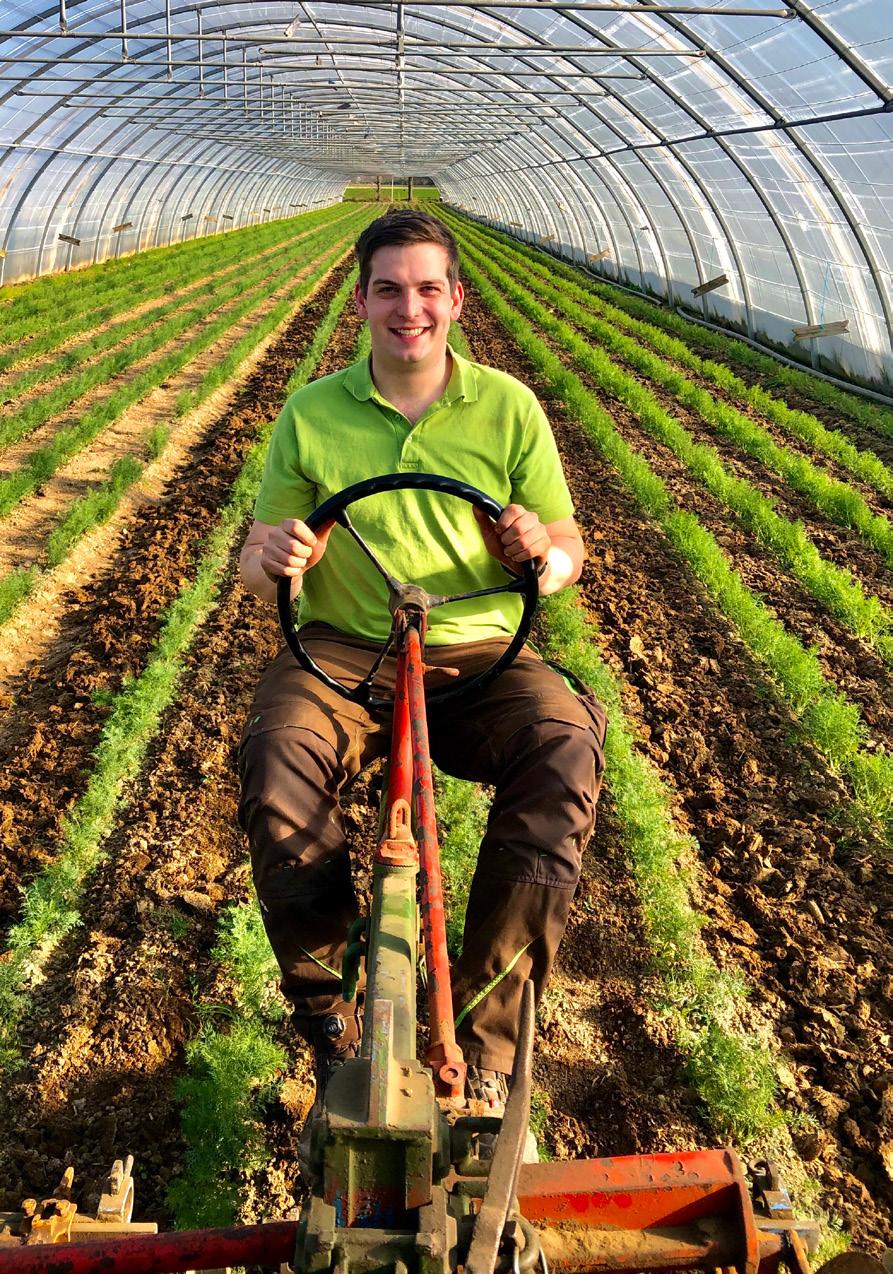
“We try to have a negative CO2 footprint, to do our part to reduce emissions. Another big challenge is water consumption, even for our farm in Germany. Therefore, we are monitoring the water level of our fountains to keep them at a stable level, and we are looking for alternatives in irrigation to reduce water consumption.
Our farm has been Rainforest Alliance Certified since 2017. Furthermore, we invest every year in solar panels to produce green energy for our farm. With this we are proud that we can supply green energy to other people.
Sustainability is an important aspect of our work because farms are multiple generation projects. We try to save and improve our environment so that the next generation has a chance to become a farmer on the same land as many generations before me.”
Organic farming can be difficult, labor intensive, and expensive. Having customers that appreciate the difference, however, goes a long way.
“We started with organic farming 8 years ago. We changed to organic farming as we think it is a good practice to preserve our nature.
Organic farming requires a lot of manual labor. Especially the work from our employees who are working at the fields even on rainy and windy days.
As we are a company settled in Germany, labor is very expensive. We have a higher risk that if something is not good with the product, we will lose a lot of money.
But we are happy to have customers who can appreciate it! We believe in organic farming and think it is a good farming practice to work better with the nature instead of changing the nature as we farmers need it.”
Farmers like Daniel remind all of us that sustainability is about investing in the present to protect the future. We’re proud to be a part of this farm’s rich history.
“I am really looking forward to running the farm. I see a good future for our dried products and that we can increase our production in the next years. For me, as the new generation, a lot of changes are needed to run our family farm for the next years, but I am looking forward to facing these challenges.”

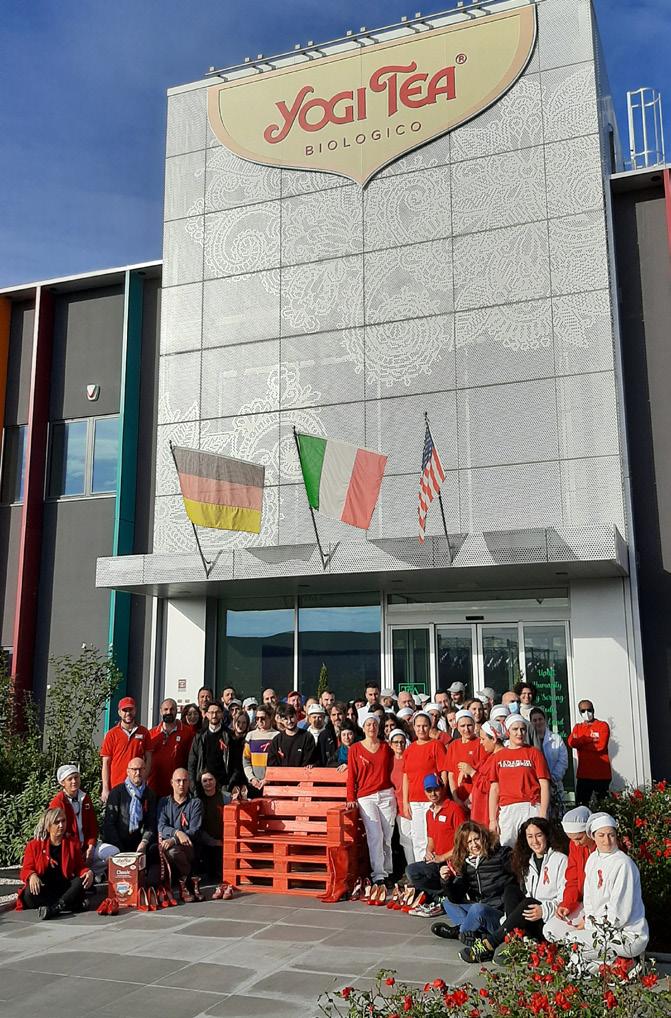

Only 3% of the world’s B Corps are based in Italy, and we couldn’t be more proud that TeaPak is one of them. After an enormous amount of effort, they were certified in October 2022 with a B Impact score of 108.5 – smashing the 80 required for certification, and more than doubling the median score of 50.9 that ordinary businesses earn.
Founded and empowered Carbon Working Groups – specialized groups of employees from around the company tasked with finding ways to reduce our carbon footprint.
Adopted local beehives as part of a biomonitoring project in April
Hosted a local supplier in a “Sustainability Open Day,” engaging partners to work together to achieve our sustainability goals
Installed rain sensors and electricity meters to optimize natural irrigation and energy consumption
Won the REDI Index Award, honoring our commitment to respecting the different religions and cultures that comprise the TeaPak team
Presented the project “Women’s Bravery is Universal,” to support Ukrainian refugees and resident Ukrainians in Imola. The project includes a mental health listening desk for women and teens, assistance for school integration, support for children’s summer camps, Italian literacy support, and job search assistance
Composted 15,100 kg of organic matter
Recycled 123,626 kg of potential waste
Received 1,734,098 kg of organic ingredients
Increased our usage of Rainforest Alliancecertified ingredients - 29% in 2022, compared with 18% in 2021
It was a big year for TeaPak, the master blenders and packers of all our teas in Europe. From joining the ranks of certified B Corps to launching a diverse range of community engagement projects, it has been a very impacful year.
Of all the sustainability innovations happening this year, one has more to do with what isn’t happening rather than what is. Hamburg has a rich tradition as an import hub, particularly for spices and botanicals. We used it too, importing our ingredients through its famous port before shipping to Italy for packaging and distribution. This year we made a change: By shipping directly to TeaPak, we avoided 81,000 km of travel, saving 57 metric tons of carbon dioxide.
We organized our business and community partners from around Europe to fill four trucks full of aid materials to send to Ukraine. Beans, noodles, fresh produce, paper products, medical supplies, and 700,000 teabags – hopefully providing some measure of comfort during the ongoing crisis.
Engaging with the local community is an important part of building a better world. This year, for our annual Social Day, colleagues supported a leading local charity by sorting through donated winter clothes and preparing them for distribution among people who are unhoused or displaced from their homes because of conflict, persecution, or natural disaster.

Yogi Tea GmbH’s headquarters organizes the development and sale of Yogi Tea and
Ingredient:
Chamomile Location: Pitomača, Croatia
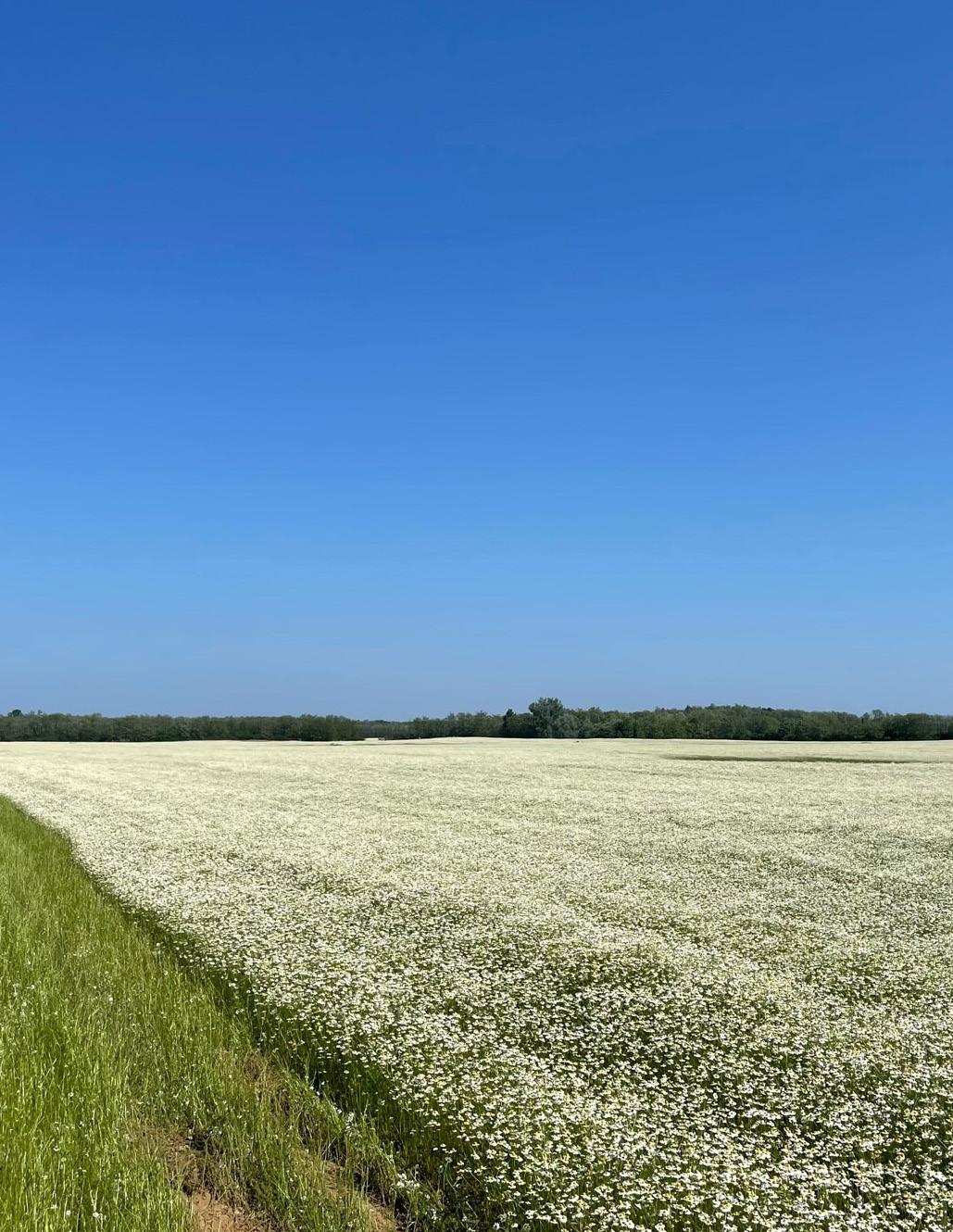
Years Operating: 25 years
Supplying us: 2 years
Behind every ingredient there is a source, and behind every source there are people. It’s our privilege to introduce Diana Bartolić.
Diana grew up in Virovitica, Croatia, a region known for its herbs, and herb cultivation has always been part of her life.
“My great-grandmother collected wild herbs and mixed them in a special infusion, helping people from the village with health issues. As a small child I walked through fields with her, collecting plants, step by step building my knowledge and relationship with the world of herbs.”
As she grew older, her parents started a business growing and processing chamomile for herbal infusions and tea.
“My mother opened export markets with her excellent trading skills, while my father was an expert in cultivation of herbs. My father had a vision of sustainable cultivation, providing seeds to the farmers, giving them knowledge, teaching them about cultivation and wild collection through many in-house education sessions given by our agronomists. Very often we provided gas for drying or paid families with lower incomes in advance.”
When Diana joined the family business in 2004, it had grown to employ 70 people, growing chamomile, mallow, lemon balm, mint, and nettles and also processing, importing and exporting with many other countries, and packaging for private label brands. Today, the business includes five companies in Croatia, employs 220 people, and is connected to a sister company, Everton Group in Italy.

“We became a very important company in our region employing more and more families in our company or as contracted farmers. From the first days we were sponsoring our area’s social groups such as medicine and health, sports, schools, and fire department, sharing our vision of better society.”
Diana says Croatia is the perfect place to grow and harvest chamomile.
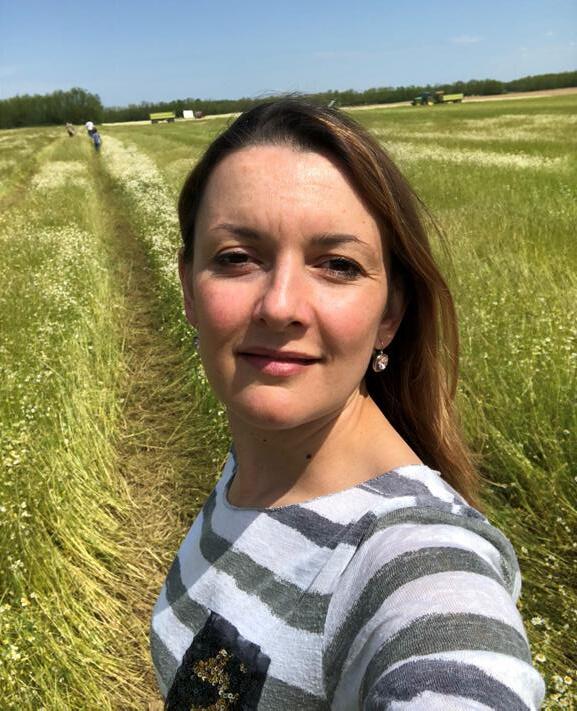
“Croatia, especially our area, has an excellent soil and climate conditions for growing chamomile. Also, in our region, there is a long tradition in growing chamomile and collecting different wild herbs. We are deeply dedicated to the quality of our products.”
Seasonality is also important.
“There is a period of 3-4 weeks in April and May when our beautiful chamomile fields blossom and the whole area around our factory has gorgeous scent. Everywhere you look are amazing yellow-white fields. We call it a ‘sea of chamomile.”
We’re proud to support farmers like Diana, who share our sustainability mission.
“We want to enrich the fields we use to be sustainable for many years. We want to live in a healthy environment, to be responsible to nature and the people in our community.”
Who: Yogi Tea, MartinBauer, Pukka Herbs, and The Organic Valley, helping 350 Nepalese smallholder farmers
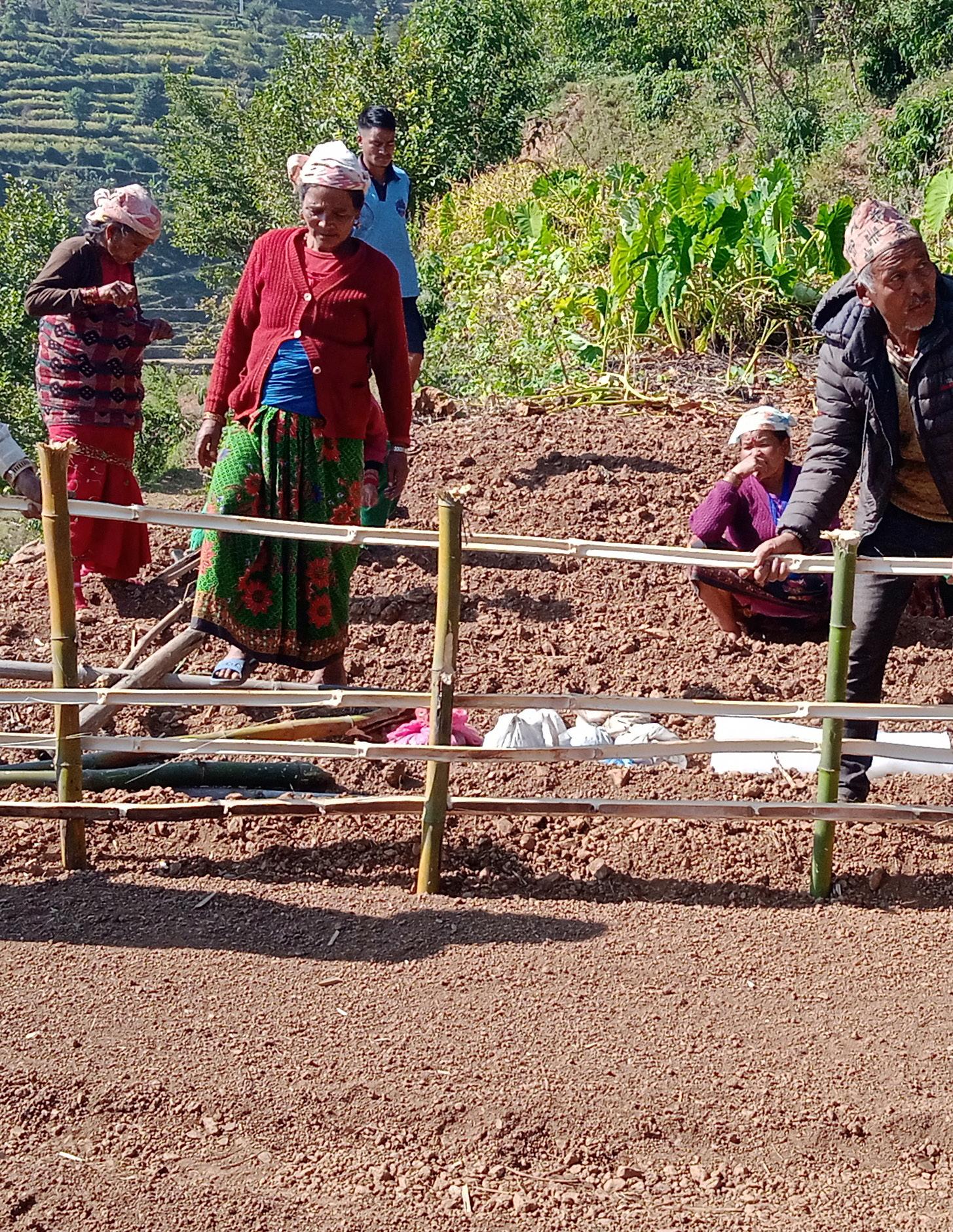
What: A project to improve food security in an agricultural area threatened by climate change
When: April 2022–March 2023
Where: Doti District, Nepal
Why: Climate change doesn’t just affect the ingredients we purchase from farmers –it impacts what they grow for themselves too. We, and our partners, feel it is important to help our farmers’ communities stay healthy and thriving despite these global challenges
How:
Establishing home and kitchen gardens, promoting local crop varieties, and teaching compost management for organic and sustainable production to improve food security and enable sustainable economic growth
Friends in high places:

Smallholder farmers are most at risk in the era of climate change. This project helps them stay healthy and resilient, thanks to the tea industry working alongside local stakeholders.
The impacts of climate change on agriculture are more pronounced among smallholder farmers, who are highly exposed and sensitive to climatic threats. In Nepal, increased temperatures and unseasonably heavy winter rains have caused serious distress to agriculturedependent communities.
By engaging farmers in high-value crop production and marketing their work as small entrepreneurs, we are able to mitigate some of the pressures that have been pushing them to poverty. Identifying and promoting farm productivity also helps farmers’ adaptive capacity and, as a co-benefit, their ability to mitigate climate change impacts and improve food security.
With interventions like this, rural Nepal can implement a sustainable, resilient agricultural model while providing income, employment, and food security.
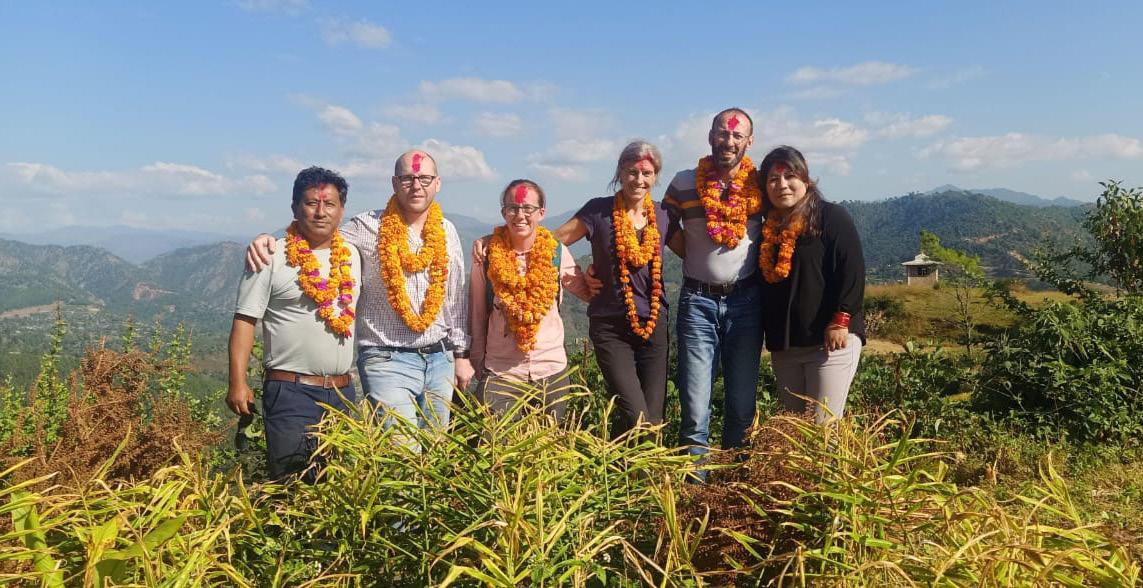
High in the mountains of Nepal, a coalition of local and international partners is helping Nepalese ginger farmers stay resilient despite a changing climate.Sustainability manager Briana Buckles alongside industry and local collaborators
Our sustainability manager Briana Buckles had the opportunity to visit this project in 2022. Here are her reflections on the experience:
“For one week, I lived with, shared meals with, and traveled with industry collaborators from MartinBauer, Pukka Herbs, and the Sustainable Herbs Program, as well as key team members of The Organic Valley in Nepal. Together, we’re cofunding a sustainability project with ginger farmers that’s helping to promote regenerative agriculture practices and food security in rural farming communities. Even though we compete with Pukka in the marketplace, we have shared values and equal commitments to sustainability. Partnerships like these allow us to put our competitive differences aside and collaborate for more efficient, faster, and more impactful sustainability progress.”

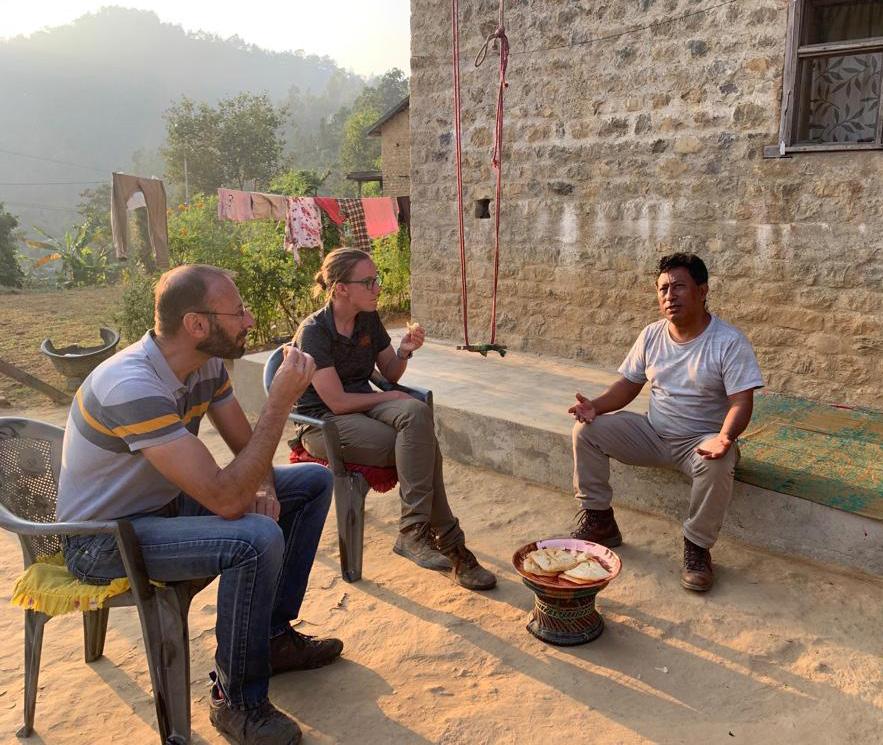
Enhance food security for households in Doti
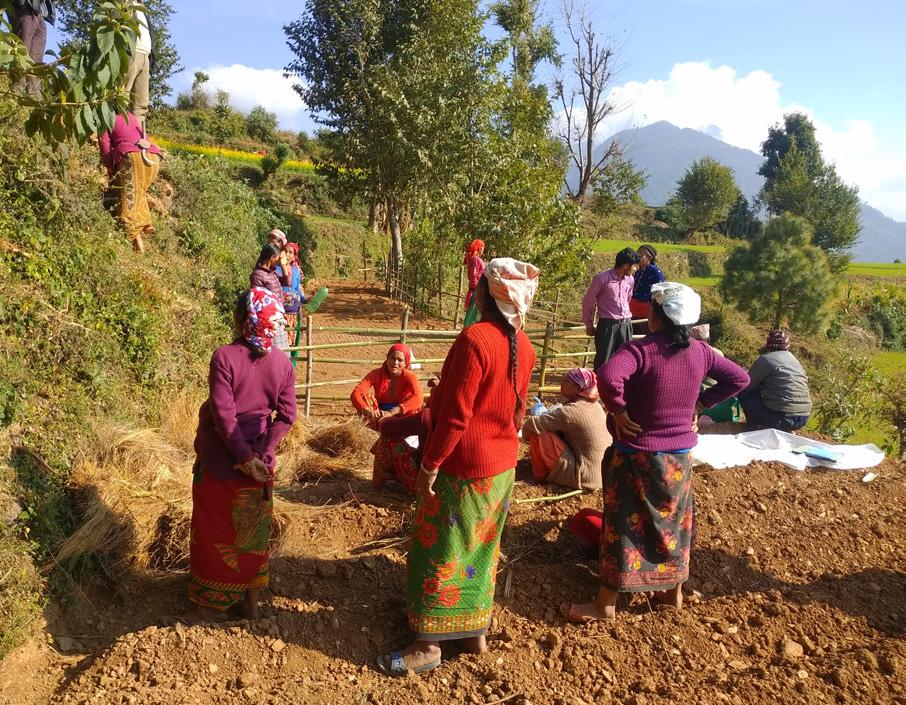
Improve income sources by providing education regarding production and sale of diverse agricultural products
Increase capacity to cope with the impacts of climate change by propagating sustainable cultivation methods
Who: Yogi Tea, in partnership with GIZ and AVT McCormick, training 200 farmers
What: A pilot project aiming to evaluate the impact of regenerative organic agricultural practices on ginger and turmeric production
When: The project started in July of 2021 and is slated to run through December of 2023
Where: Kerala, India
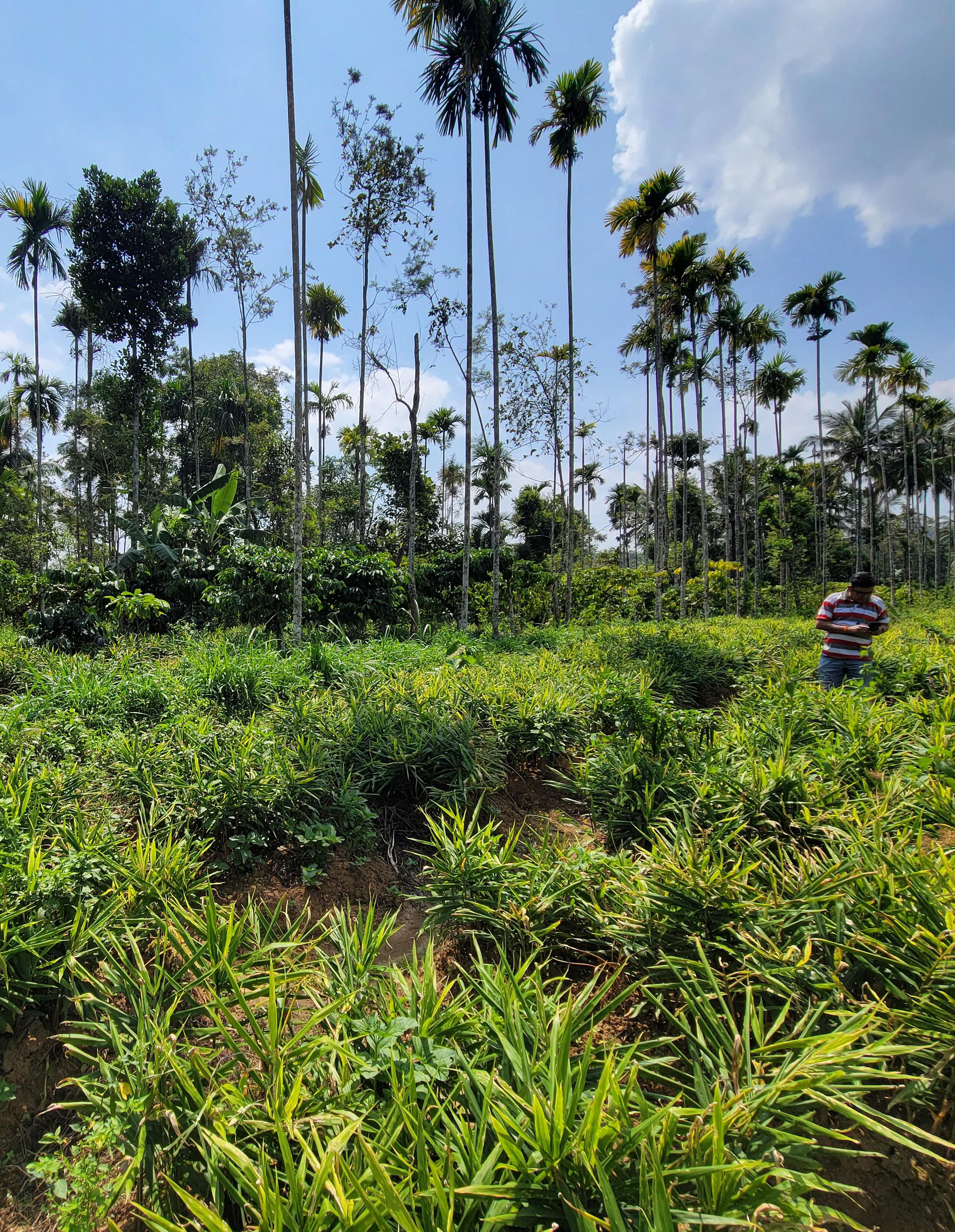
Why: Regenerative agriculture’s impact on ginger and turmeric production has never been tested. We expect regenerative practices will have a significant, positive impact on both farmer incomes and climate change resiliency. If this pilot project is successful, we will scale up and apply what we learn to more farms
How:
In a first for the region, ginger and turmeric farmers will be trained in cover-cropping and composting techniques. The benefits of these regenerative practices will then be measured against the organic practices these farmers are already using
Our impact goals
Fighting climate change by sequestering CO2 in soil
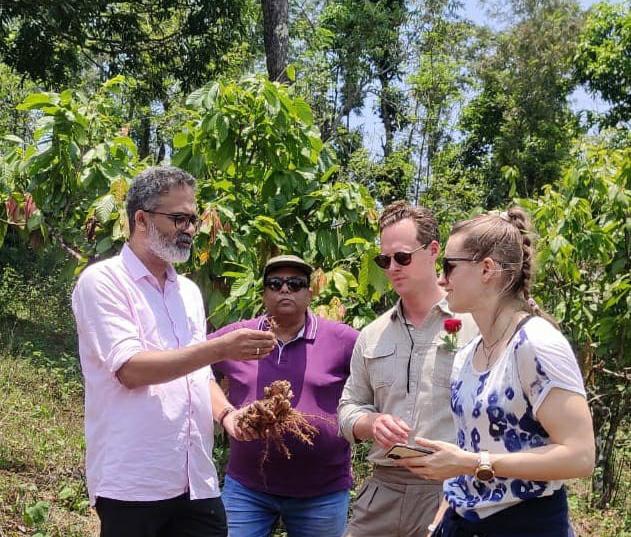
Increasing incomes through improving yields and decreasing use of costly inputs
Reducing incidences of pests by increasing biodiversity
Selling of carbon credits and planting new crops to diversify farmer incomes
Regenerating topsoil by integrating successful composting and minimum tillage practices
Increasing climate change resiliency through improving water retention
We’re getting our hands dirty to demonstrate a better way of farming.
We’re firm believers in the promise of regenerative agriculture, but there’s nothing better than solid evidence to demonstrate its potential. This project is all about measuring the impact of regenerative practices on organically grown ingredients and the people who grow them: environmental, social, and economic factors come together in our pilot.
Our sustainability manager, Briana Buckles, visited some of these project sites in late 2022. Here’s what she observed:
In October of 2022, I had the opportunity to visit these ginger farmers. Touring their farms in Wayanad, India, and learning more about the existing farming practices provided an invaluable perspective for our approach to these types of projects. Each farm I visited had its own unique way of growing ginger, which means our approach to regenerative agriculture can’t be a one-size-fits all solution. For me, it really emphasized the importance of partnering with the farmers, with our sourcing partners, and with our other project partners to continue advancing regenerative practices throughout our supply chain. That’s the value of a pilot project: It creates a learning opportunity for everyone involved.
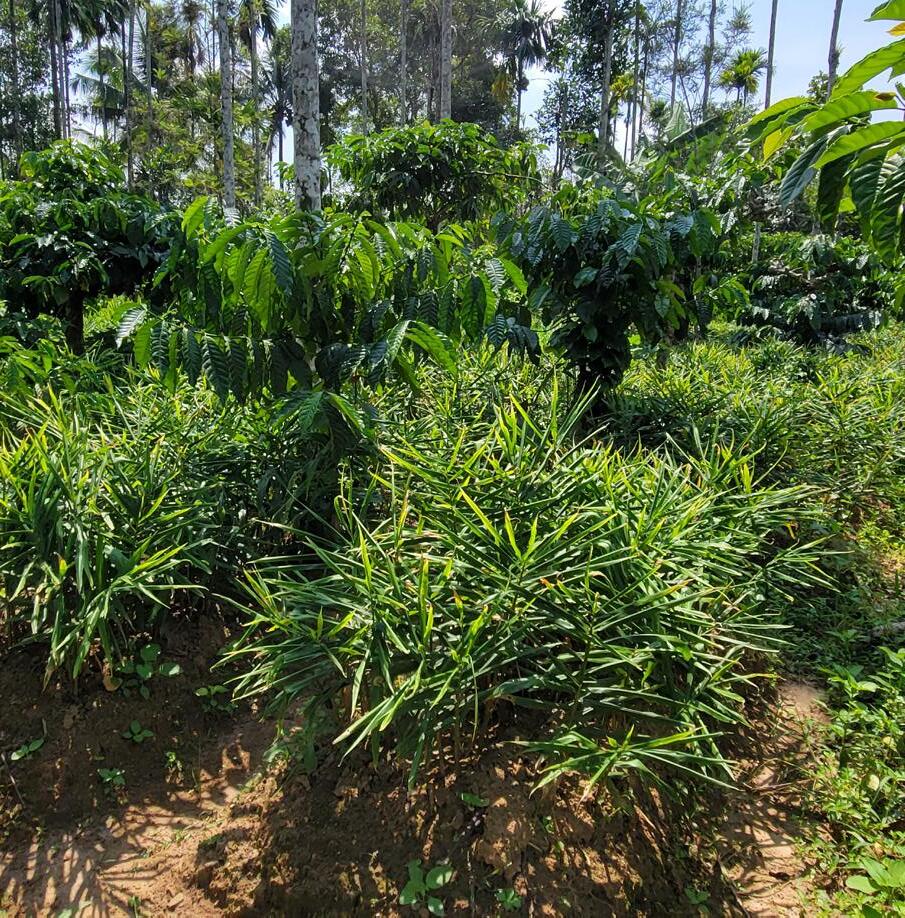
Ingredient: Cinnamon, clove, pepper, nutmeg, and mace
Location:
Farming community in Ambalawa; plant in Harana, Sri Lanka
Years Operating: Over 10 years
Supplying us: Since 2020
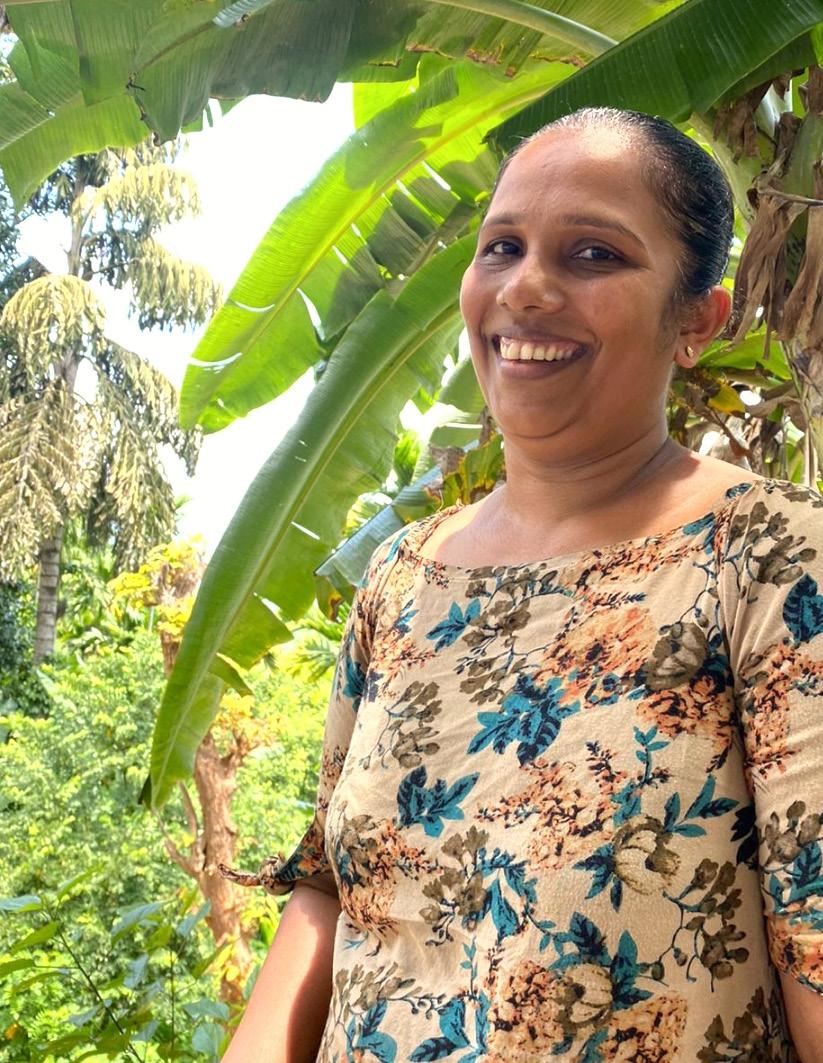
Nobody farms alone. In Sri Lanka, with the recent economic and political uncertainty companies like Verger are making a difference by taking a central role in supporting their communities.
“My name is D.G Jayathilaka, and I live in Akkara Seeya, Ambalawa, which is a remote village located on the border of the central province. I’m married and I have four children.”
Farmers like Mr. Jayathilaka work hard to sustain their communities’ social and environmental well-being.
“Our environmental practices aim to improve biodiversity, reduce deforestation by continuously working towards afforestation, and encourage people within the community to do so as well — protecting wildlife within and outside farming practices ensures native species aren’t affected.
Moreover, we work toward promoting the natural cycle of elements along with sustainable and profitable crop yields — thereby we all benefit. Our social practices ensure that we empower farming communities while taking into account the well-being of all personnel involved within our agricultural practices.”
Conservation and economic benefits go hand in hand thanks to a holistic understanding of farming.
“The farms we work on have an ‘agroforestry’ system consisting of multiple crops, trees, and shrubs, which are covered under a permanent canopy cover throughout the year. This system provides us with crop harvesting as well as food, timber, and firewood.
The crops our partners source from us are harvested in a healthy and sustainable environment within a farming system that conserves its soil and environment, which ultimately uplifts local communities by providing livelihoods for them.”
Mr. Jayathilaka relays a farmer’s story from one of his recent site visits:

“Inoka is a passionate organic farmer within our Verger family from the 100-acre Ambuluwawa farming community, in the Kandy District of Sri Lanka.
Inoka has a half-acre of land which consists of 350 black pepper trees, cloves, and traditional indigenous plants. Her farming community is popular for black pepper, cloves, and vanilla.
Three and a half years ago, while she was harvesting and trading, she came across Verger and appreciated our work on sustainability and a 100% natural farming model.
She instantly knew we were a perfect fit for her and has been partnering with us ever since. As a mother of three daughters, she and her community are not only appreciative of what Verger gives back but also enjoy the empowerment that enables them to play a part in their shared economy.
Our new water project, a key pillar in the Verger community outreach giving access to cleaner drinking water, is an example of our commitment to the health of these farming communities.”
Collaboration addressing crisis: Our involvement
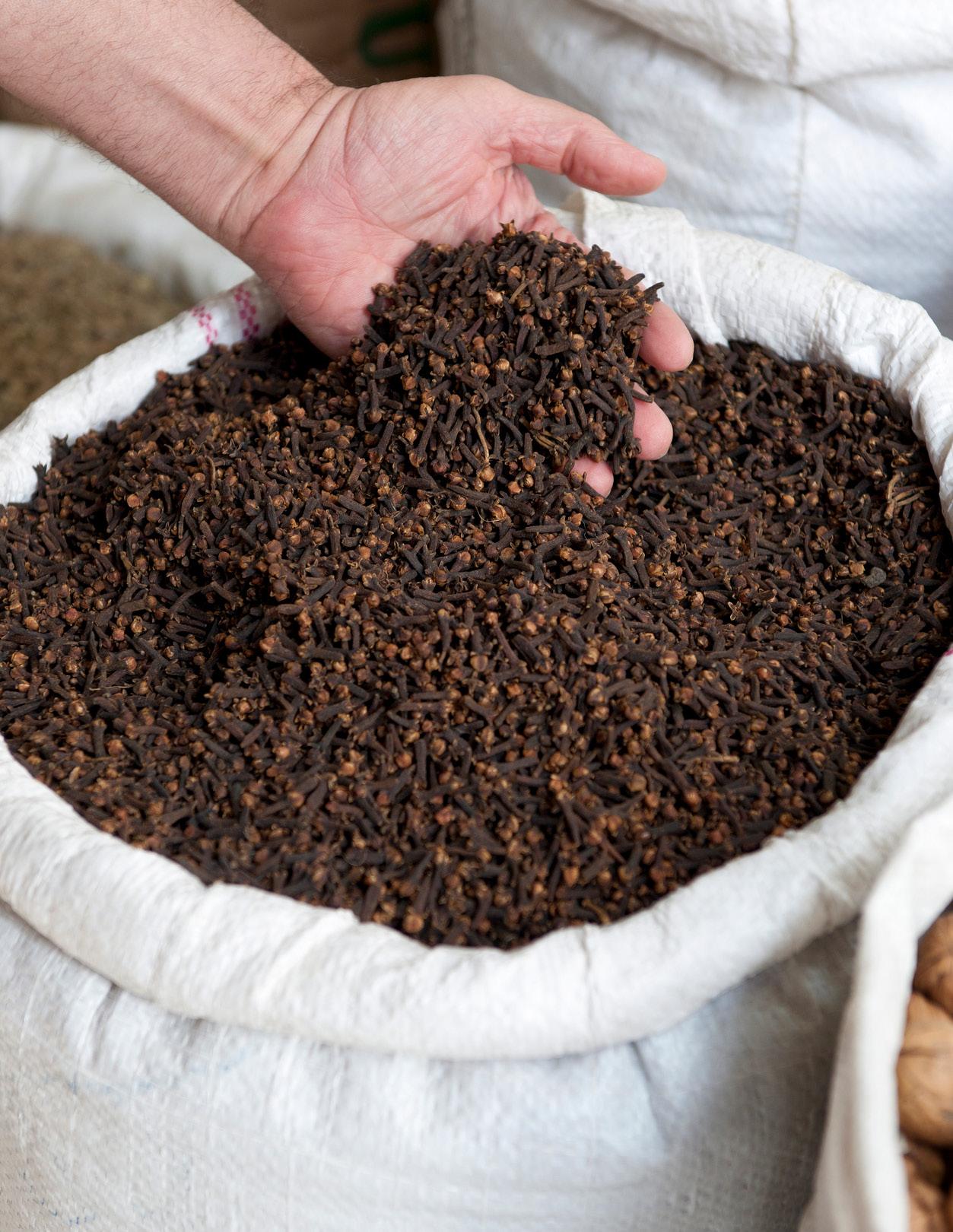
A recent policy change by the Sri Lankan government had farmers scrambling to adjust. A Yogi Tea and Verger collaboration provided a regenerative solution.
Early in 2022, Sri Lanka banned the importation of chemical fertilizers in a move toward organic farming. The environmentalist intent is admirable, but the abrupt change meant farmers were scrambling to stay productive. For months, farmers across Sri Lanka protested the sudden shortage.
To help their community, in partnership with Yogi, the Verger team started to compost cinnamon bark waste, providing it to farmer communities at a concessionary rate. As a result, farmers are provided easier access to this locally produced, sustainable fertilizer.
This upcycling initiative turns would-be waste into badly needed organic fertilizer, shared with farmers throughout the region.
This collaboration will have a lasting impact on a struggling community of farmers. Further, this is the first time in Sri Lanka that cinnamon bark waste has been used for compost at scale. We hope this will be a benchmark industry practice as it progresses.
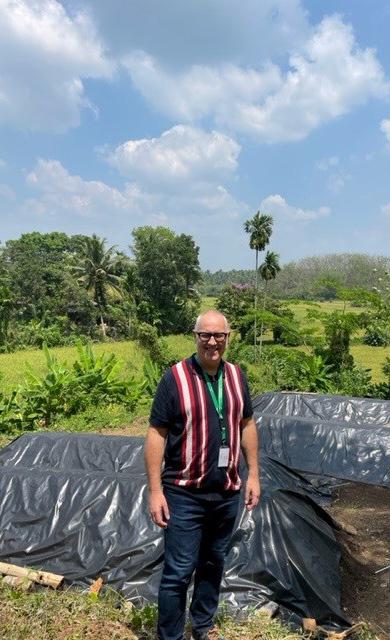
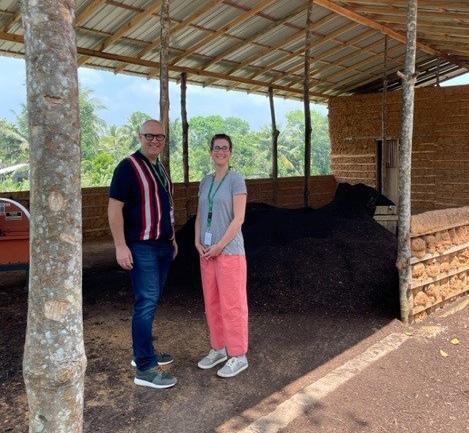
Our impact goals:
Crops benefited: cinnamon, pepper, clove, nutmeg, ginger, turmeric, vetiver, jasmine
654.46 acres of farmland, involving 198 farmers, benefited so far
Total beneficiaries: More than 1,500 people
60+ tons of organic compost converted from what would have been waste every quarter
Martin Farms
Ingredient: Peppermint, spearmint, skullcap, and lemon balm
Location: Oregon, USA
Years Operating: Since 1975, with a family legacy going back over 100 years
Supplying us: 9 years
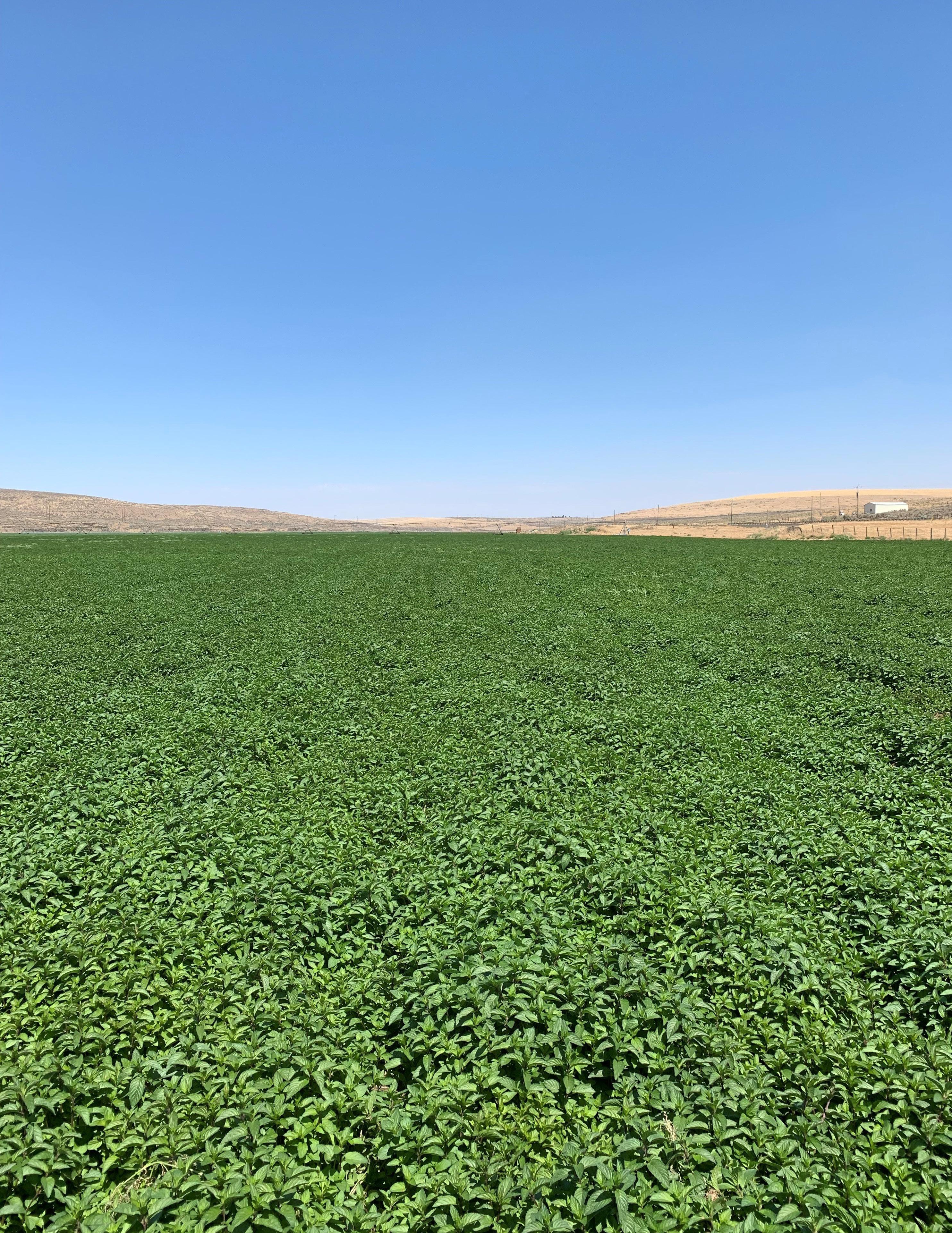
Aromatics, Inc.
Ingredient: Peppermint, spearmint, lemon balm, skullcap, and alfalfa leaf
Location: Basin City and Pasco, Washington
Years Operating: Over 30 years
Supplying us: Over 10 years
Bill Martin is a second-generation farmer whose father grew wheat. Thanks to installing a new well decades ago, he’s now a diversified farmer on land throughout Washington state.
“At Martin Farms, we strive to produce the highest quality product using the most efficient means, while not compromising integrity and safety. Sustainability is a key component in all the decisions we make on our farm today.”
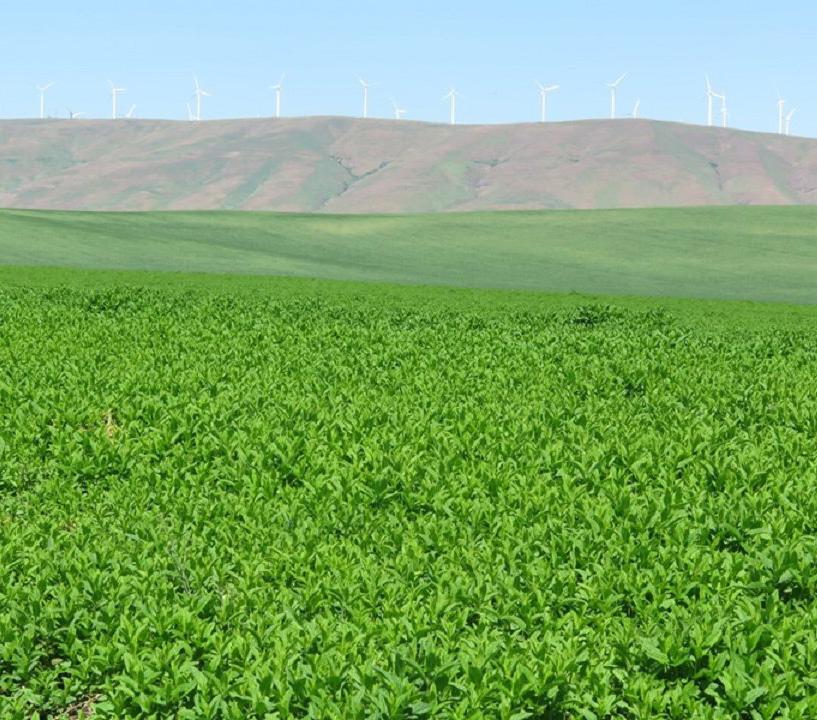
Aromatics helped him start farming organically 10 years ago; now, he’s a major supplier of our organic mints and lemon balm.
“Our company started the transition to organics in 2012 with the help and encouragement of Aromatics. We felt the timing and fit was right with the ever-changing agricultural landscape, and we continue to learn and grow in the organic sector today.”
The future is bright thanks to his attention to detail and an interested new generation of Martin farmers
“I’m excited about the opportunity to feed the ever-growing world population, and the next generation of Martins that are now entering our diversified operation with a high level of enthusiasm. I encourage everyone to educate themselves on the high-quality products that the US produces and how truly lucky we are.”
A good partnership means everyone can play to their strengths. Martin Farms grows beautiful mint and lemon balm. Aromatics is a trusted processor who also provides support to their farm partners – including helping Martin Farms make the transition to organic in 2012.
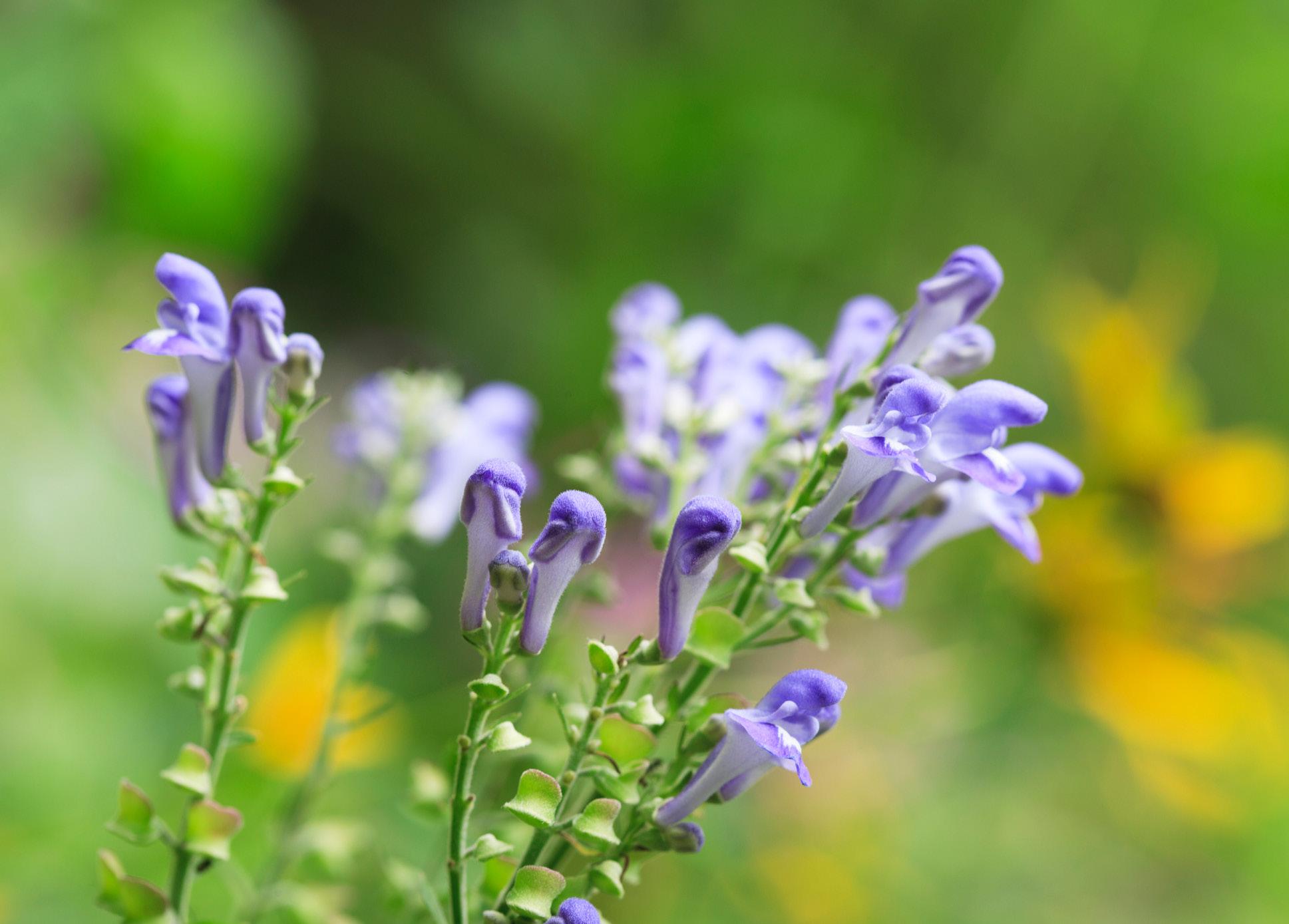
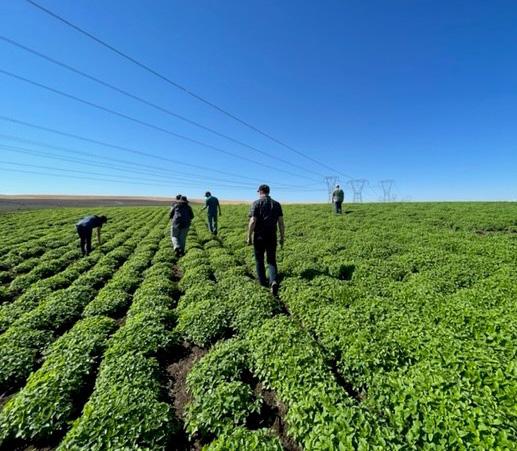
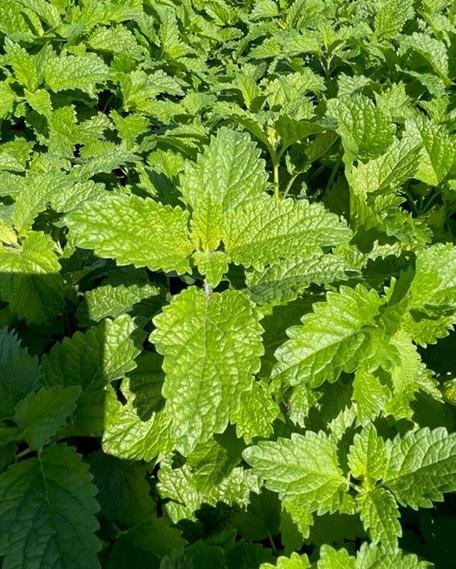
We couldn’t work with the Martins without Aromatics’ support. Their community-oriented spirit is contagious, and we’re honored to support our local herb growing ecosystem. Here’s second-generation herb farmer Nate Johnson:
“Not only are we a family run business, but that “family” expands to all our business relationships. It starts with Aromatics’ company culture and spills over to our farmers, everyday vendors, and customers. Is it too much to expect everyone involved should be fulfilling their passion? For us, it is producing beautiful looking and great tasting tea leaf.”
Climate change has created significant threats for farmers up and down the West Coast of the United States.
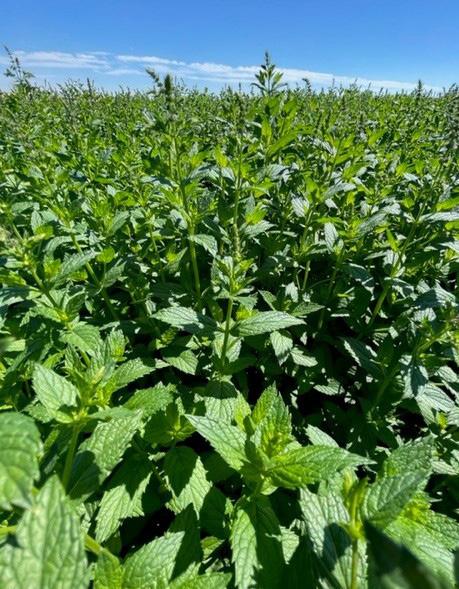
“Virtually the entire West has been in a drought for years. Everyone must be more flexible: changing conditions in sourcing regions means we must think on our toes and mitigate risks as best as possible.
We have a department dedicated to ensuring both quality & food safety and grower support. That grower-support involves everything from transportation logistics to soil health. By giving growers the best information available, they can make informed decisions around financial, social, and environmental sustainability.
Recent droughts have worsened causing greater water shortages affecting many of our Pacific Northwest growers, and while they have responded with numerous conservation efforts, it still has reduced their ability to produce volume, which impacts their bottom line. Climate change affects agriculture in ways that we are just beginning to see the impacts.”
We all stand a better chance of building a sustainable future if we share Aromatics’ collaborative, communityminded approach.
“Our products are a result of combined experience of a lot of passionate and talented people. It doesn’t matter if you are a grower of three years or 20, an employee of 18 months or 18 years, you bring a wealth of knowledge with you. It doesn’t hurt that we have some industry veterans on our team. Aromatics has invested in people – after that, everything just works.”
Last year, on Earth Day, we published our first Sustainability Report and played host to a special guest: a friendly local goat, who had a great time hanging around the festivities.
Our Eugene headquarters has one of the best tea-making teams on Earth, with sustainability built in everywhere.
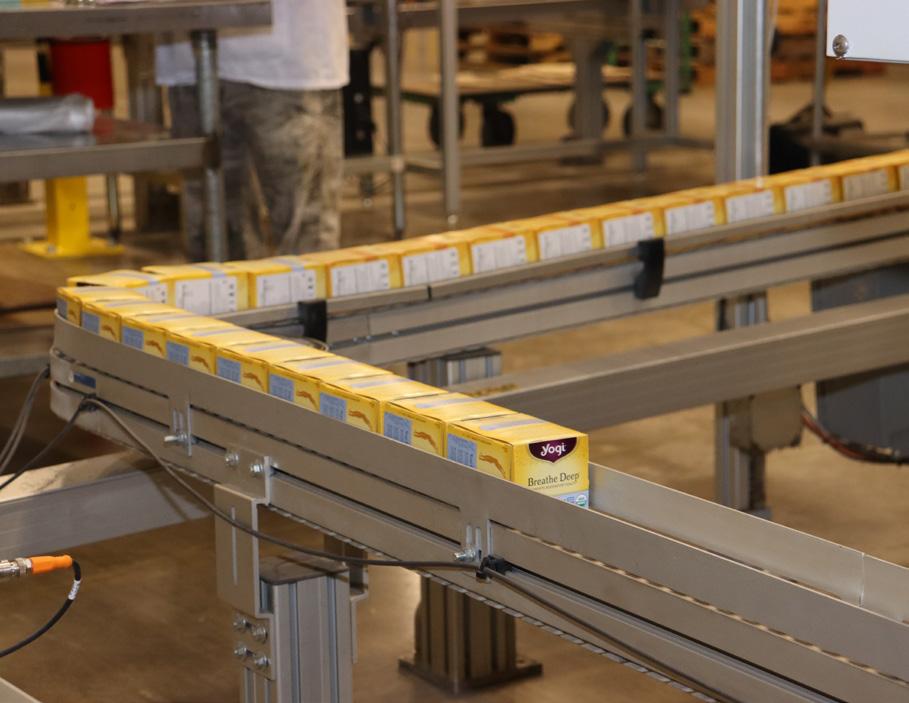
Key initiatives:
Donated 25,429 lbs of tea to Food for Lane County, the Oregon Food Bank, and Food Lifeline of Seattle - equivalent to about 2.6 million teabags
Composted 18,458 lbs of organic material
Offset 1,870 megawatt hours of electricity –our electricity usage for the entire year
Received 3,857,275 lbs of organic-certified ingredients
Increased our usage of Rainforest Alliance-certified ingredients – 24% this year, compared to 15% last
Raised the equivalent of 2,397 meals during the Food for Lane County food drive
In Oregon’s beautiful Willamette Valley, Yogi Tea and Choice Organics teas are blended and packaged for drinkers throughout North America in the world’s first LEED-Certified tea production facility.
This year’s Sustainability Fellow was Colleen Kennedy, who created tools to aid our carbon footprint reduction strategy. Here’s what she has to say about the experience:
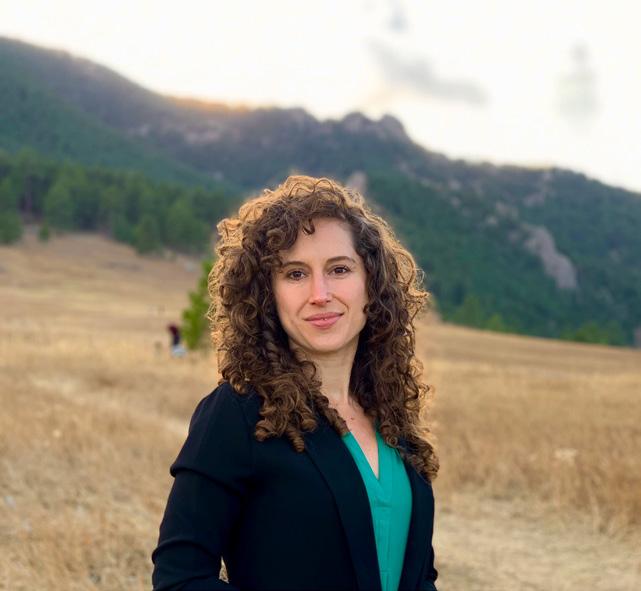

“As the Sustainability Fellow for EWTC last summer, I created a 5-year emissions reduction roadmap and data modeling tool for the company’s global carbon footprint. The work I accomplished was a defining moment in my career, and I continue to reflect on how this experience will impact my future. The tea industry is uniquely positioned to have an impact on emission-reduction activities and broader sustainability efforts that ripple across the globe, and East West is leading the charge. I am thrilled to have played a small part in EWTC’s journey to building better business practices worldwide.”
A commitment to better business: B Corp certification

East West Tea Company has been a B Corp since 2014, picking up accolades along the way:
Best For The World: Overall 2019
Best For The World: Changemakers 2019
Best For The World: Changemakers 2018
Best For The World: Changemakers 2017
Earlier this year our US operations earned a huge increase in B Corp rating, scoring an incredible 129.3! Ordinary businesses score around 51, and an 80 qualifies for certification. Our 2019 score, 105.6, was a strong showing, but we’re proud to see our continuous improvement reflected in a higher score.
Last year’s intern, Aliça Diehl, is still in touch and continuing to thrive after her EWTC experience:
“The context and experience that I gained through my work with EWTC elevated my foundational knowledge. After graduating as valedictorian of my MBA class, I was offered a role with global consulting firm WSP as a Project Consultant on their Sustainability, Energy, and Climate Change team. Pointing to experiences at EWTC impressed my WSP interviewers, and my time with EWTC still serves as an important reference for the work that I do today to support companies’ sustainability progress.”
Put a bow on it: Improving our packaging
Our packaging and shipping teams have been hard at work reducing our impact. Last year’s progress was dramatic:
Reduced 100 metric tons of carbon dioxide equivalent emissions
Used 85,000 lbs less packaging and shipping material
Who: Yogi Tea, in partnership with Mercy Corps and Twinings
What: A project to reduce the environmental footprint of cardamom production in Guatemala, while improving farmers’ lives simultaneously
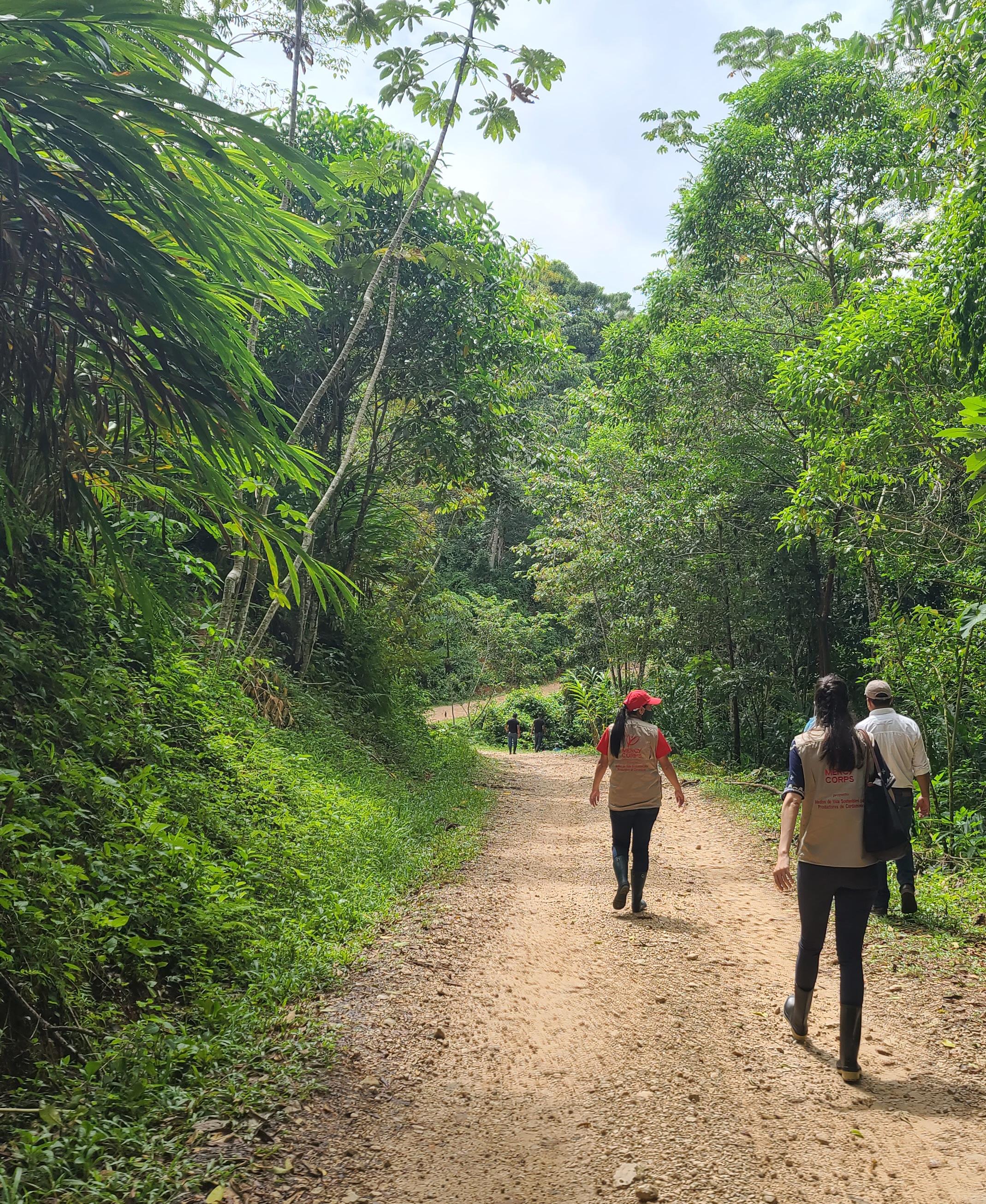
When:
February 2022 – July 2024
Where: Alta Verapaz, Guatemala
Why: Cardamom is our most impactful spice in terms of carbon emissions, with related social and economic concerns for farmers
How: We believe in fostering collaboration within the tea industry to address shared sustainability challenges. Twinings, as part of their Sourced With Care program, with Mercy Corps, had started a partnership in Guatemala, and we joined as sponsors for the second stage. With Mercy Corps working on the ground to train farmers in sustainable cardamom cultivation techniques, we all benefit from working together
In sustainability, what matters is what gets done, not who does it. We’re proud to put competition aside and partner with other tea companies to advance the greater good.

After a carbon emissions audit, completed in June 2021, we discovered that cardamom was having a significant effect on our overall footprint: Deforestation, linked to archaic drying processes, was multiplying impacts such that cardamom’s footprint was twice that of our second-worst contributor.
Instead of spending years planning our own project, we opted for a collaborative approach. Twinings had already developed and completed the first stage of a powerful, holistic sustainability intervention in Guatemala in partnership with Mercy Corps. Following a joint trip to see what was happening on the ground, we joined as sponsors for stage two.
Our impact goals:
Improve capacity and capabilities of cardamom producer groups
Increase the scale of the agroforestry systems
Improve housing infrastructure
Improve access to food through crop diversification
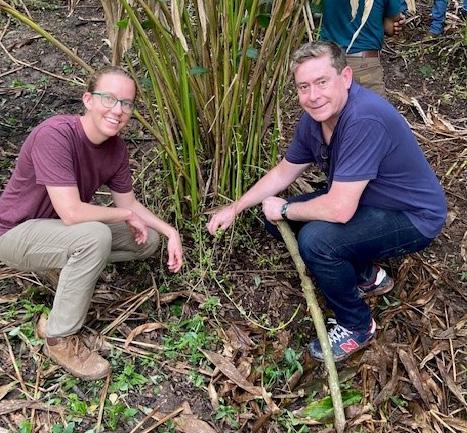
Increase awareness and education around child labor practices
A sustainable future requires all of us to do our part, and environmental work is a higher calling than fighting over sales. We hope to engage in more collaborations over the coming year.
If every company starts unique sustainability projects for every shared problem, the difficulties multiply. If we are to stand a chance of creating the change required to stave off further environmental damage, we all need to increase the rate of progress. We can do this if we work together.
Impact:
Phase One results:
500 families trained in agroforestry systems, reforestation, and improved drying techniques, increasing their income while farming in harmony with nature
251 women reported increased income, and 2,160 people received COVID support.
Phase Two targets:
750 producers receive technical assistance diversifying agroforestry systems
80 agroforestry promoters train in the cardamom value chain and with food and nutritional security 16 schools improve access to water and basic sanitation
16 Protection Committees formed for child protection and zero tolerance for child labor
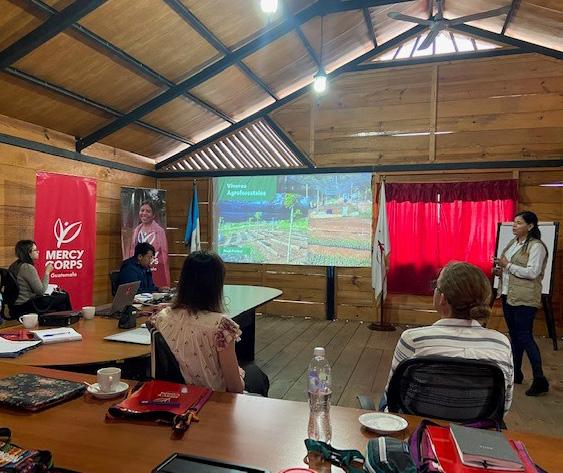
All tea companies are faced with the same sustainability issues. Why not solve them together?Ian and Briana from our Yogi team visiting cardamom fields in Guatemala
Dignity, visibility, and empowerment: Cardamom with a difference
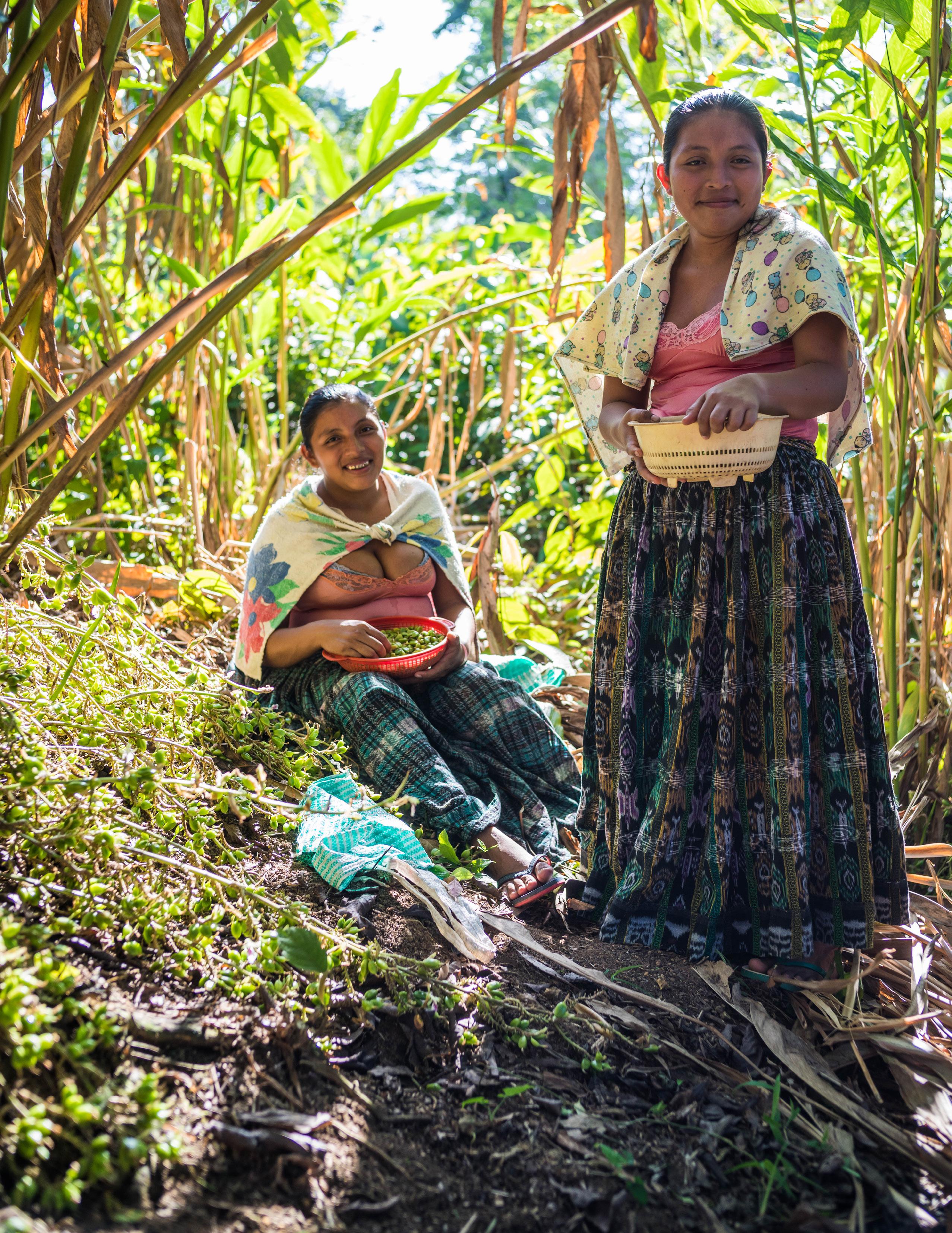
Ingredient: Organic cardamom
Location: Throughout Central America
Years Operating: 14 years
Supplying us: 2 years
Too often farmers are unseen, unheard, and undervalued. Nelixia creates change by going directly to the farm.
Nelixia counts “Know the Source” and “Involve and Respect” as two key points in their sustainability mission. To them, farmers aren’t faceless parts of a machine, or inputs to be managed from a distance. Instead, Nelixia locates their offices close by, visiting farmers frequently, including them as partners. Long-term contracts help build trust and foster lasting commitments to mutual growth.
From direct to source tracing to constant communication, Nelixia elevates their farmers from suppliers to co-creators.
It begins with understanding. Nelixia understands that farmers are more than the product they produce. They are people with histories, aspirations, and rich knowledge. Instead of taking them for granted, Nelixia works diligently to study local traditions, community rules, and local leadership. Frequent visits, on farm plots and at home, keep lines of communication open.
Communication works both ways. Nelixia’s “Open Doors” program invites farmers into the processing factory to see what happens to their cardamom once it’s harvested and collected.
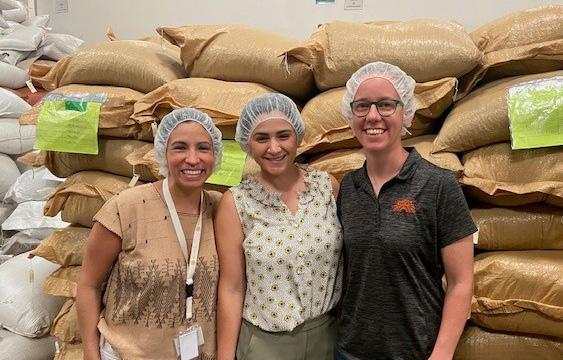
Individual plot traceability, which connects each delivery back to its individual farm plot origin, honors everyone’s contribution and respects the individuality of every farmer’s work. With Nelixia providing transportation to get farmers out of the fields and into the next step of cardamom’s journey up the supply chain, it’s a unique program that fosters pride and creates understanding for everyone involved.
A robust commitment to environmental protection supports Nelixia’s long-term vision.
Farmers are provided more than 40 different trainings on everything from soil conservation to safety at work. 100 hectares of agricultural land are set to be reforested through their Restore Together program, which runs through 2024, in addition to 170 ha that are already under organic agroforestry systems. Backed up by third-party verifications, from Organic to FairWild to Union for Ethical Biotrade, Nelixia is making a difference for people and planet.
Nelixia is a model for sustainable cultivation, and we’re inspired by their example.
Rather than a one-size-fits-all sustainability plan, Nelixia crafts individual action plants that match the needs of each value chain. Supported by on-the-ground management, involving farmers directly, and a solid understanding of who their farmers are and what their needs might be, we’re honored to work alongside such an inspiring supplier.
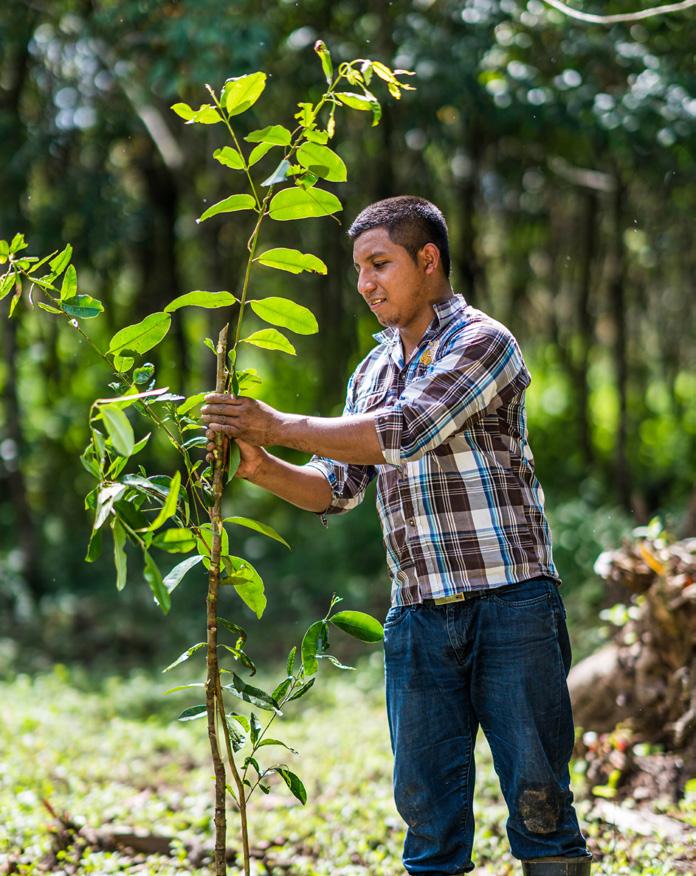
Ingredient: Yerba mate
Location: Cruz Machado, Brazil
Years Operating: 40 years
Supplying us: 2 years
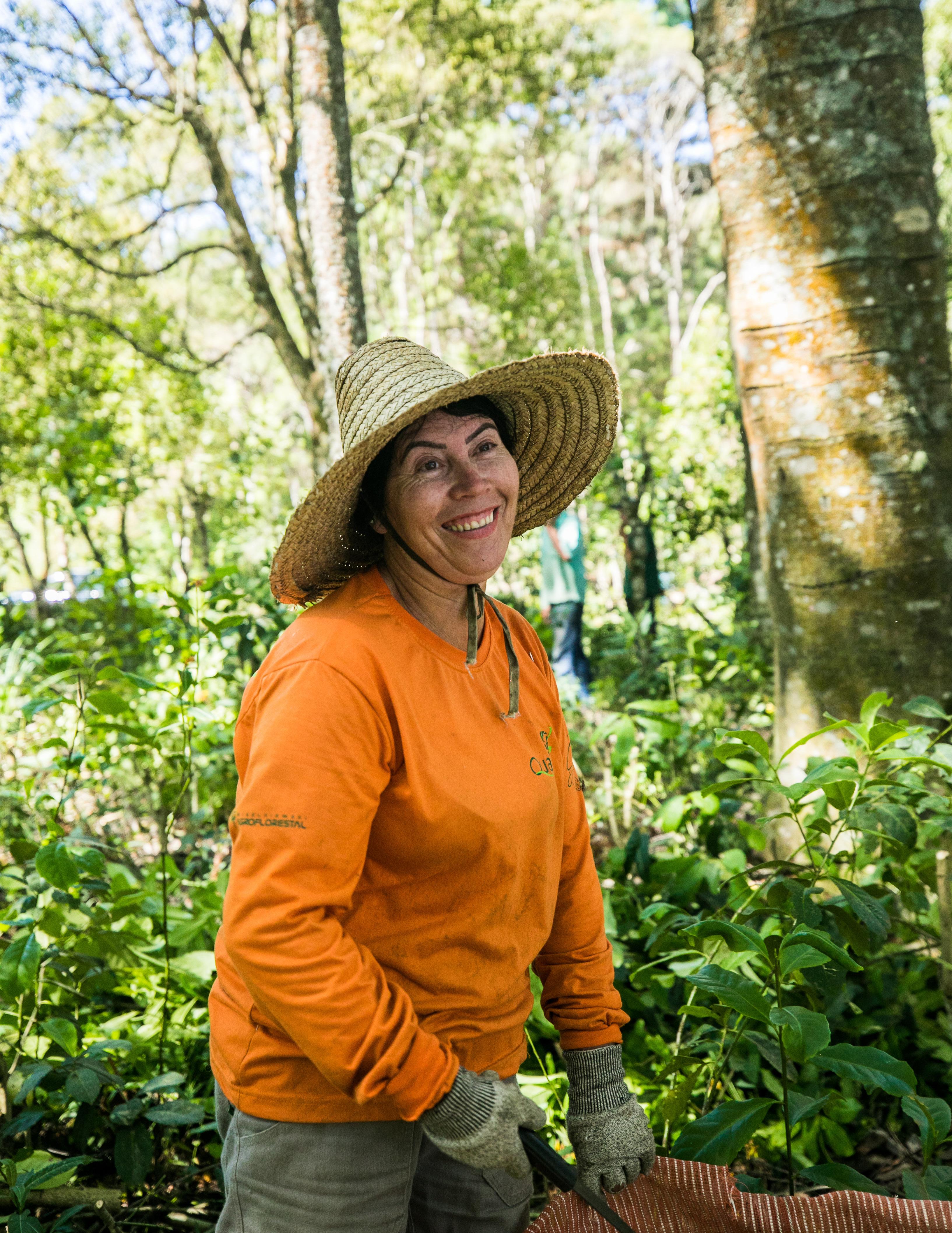
Meet our correspondents: Tadeu Mikolaiewski, César Augusto Conte, and Marcello Oikawa. They’d like to introduce themselves:
“Tadeu is the CEO of the company and a member of the Mikolaiewski family who have been planting yerba mate for over 40 years in the city of Cruz Machado.
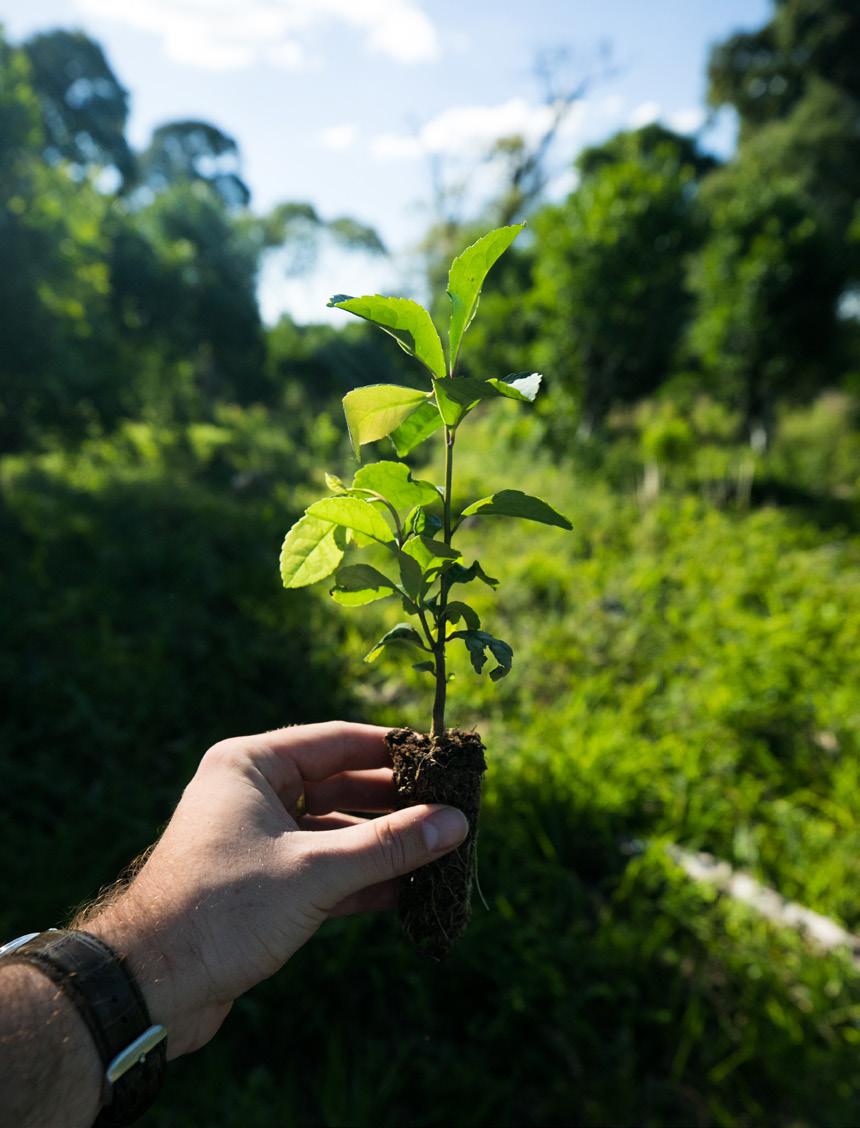
Born in the south of Brazil, César counts yerba mate as part of his culture and is very proud to be working and spreading it all over the world.
With 20 years of experience in international business, Marcello brings all his wisdom to the team. Of Japanese descent, Marcello loves tea, and he has in yerba mate the perfect energizing drink to keep up with his two little boys.”
“The consumption of yerba mate is of Guarani origin and has a beautiful history. The term “mate” comes from the Quechua word “mati”, which was used to refer to the container in which the preparation made with the herb was drunk, something like our gourd.
In the legend, a warrior from one of the Guarani tribes became depressed because he was getting old, which made it impossible for him to fight with the younger ones. His daughter, named Yari, lived with him and had already refused numerous marriage proposals because she prioritized taking care of her father.
On a sunny and very beautiful day, an eccentric traveler arrived at their house. Father and daughter were extremely receptive, welcomed the stranger, gave him shelter and food, and even sang to him late into the night. The next morning, the traveler, satisfied and grateful for the hospitality, was getting ready to go on his way when he revealed himself to be a messenger of the god Tupã.
What better way to honor a legendary plant than to grow it sustainably in its ancestral home?
Qualitá of Brazil stays true to their roots with pristine yerba mate grown in its natural environment.
To repay their kindness, he said he could fulfill the desire that inhabited the heart of the old Guarani. The ancient warrior, without hesitation, asked for the strength of youth to be returned to him so that he could return to fighting and hunting, and thus his daughter would be free to marry. Tupã’s envoy gave him the leaves of the Caá plant and taught him how to grow it and how to prepare the infusion that would make him vigorous again. That drink was yerba mate tea.”
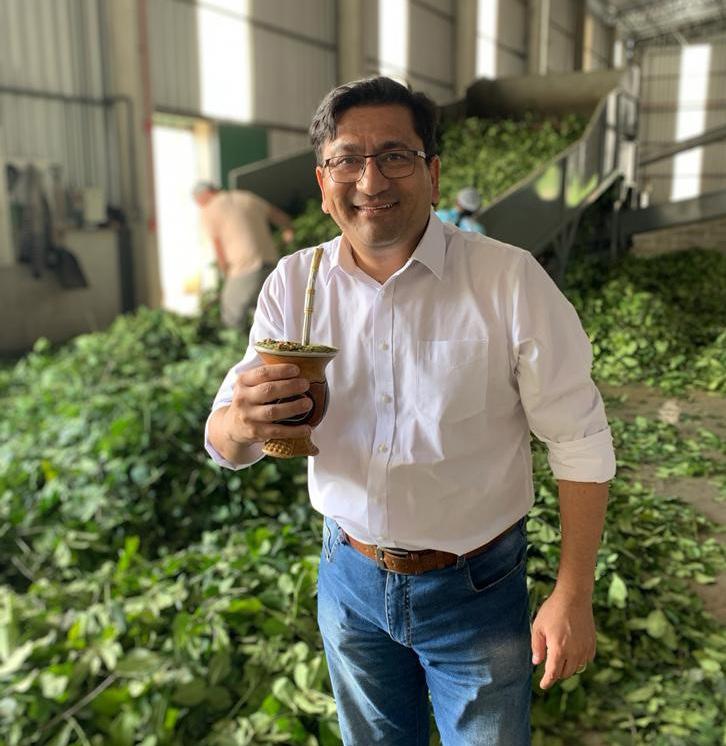
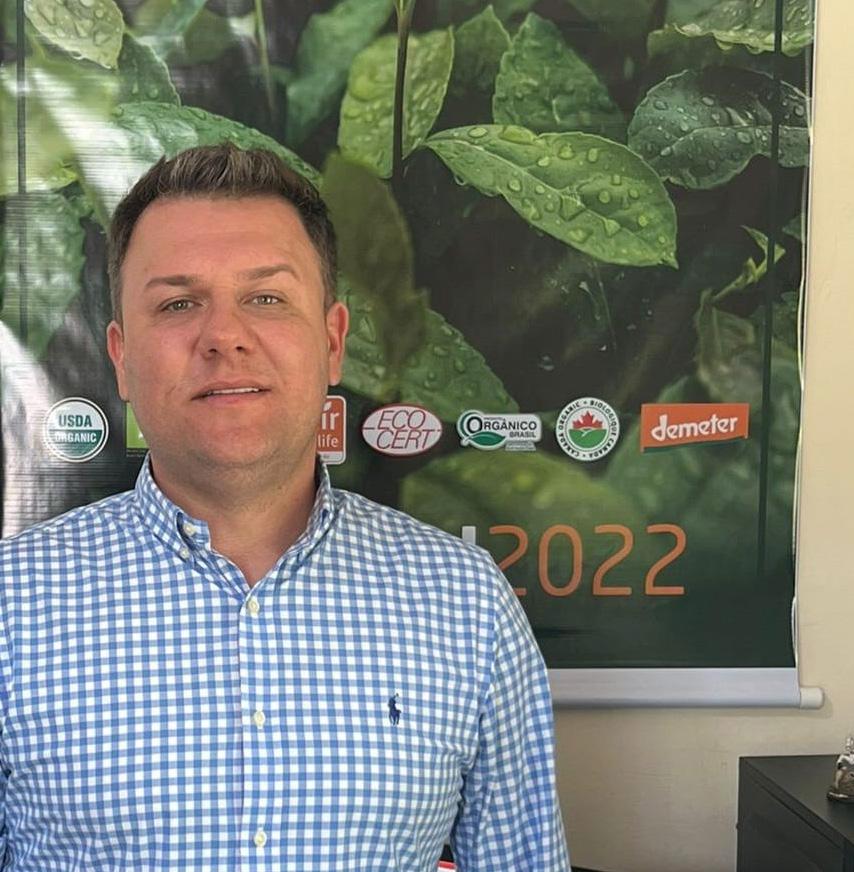
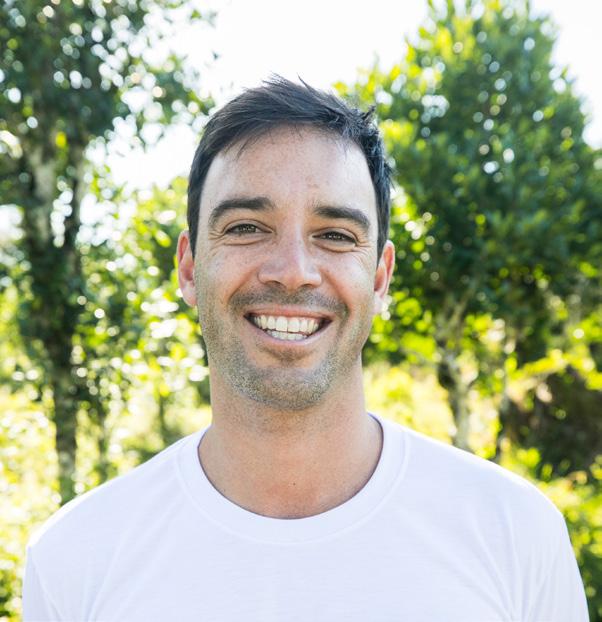
“We believe that practicing sustainability in agriculture means protecting biodiversity and producing healthy and good quality food. We share this philosophy our employees in addition to taking the utmost care of our areas using only natural fertilizers, crop rotation, and much more.
We are lucky that our farm is located in one of the few remaining areas of the native Atlantic Forest. We have the perfect soil for yerba mate. With this advantage, we are densifying our land, mixing native yerba mate trees with new seedlings, and thus increasing our productivity without causing any harm to our land.”
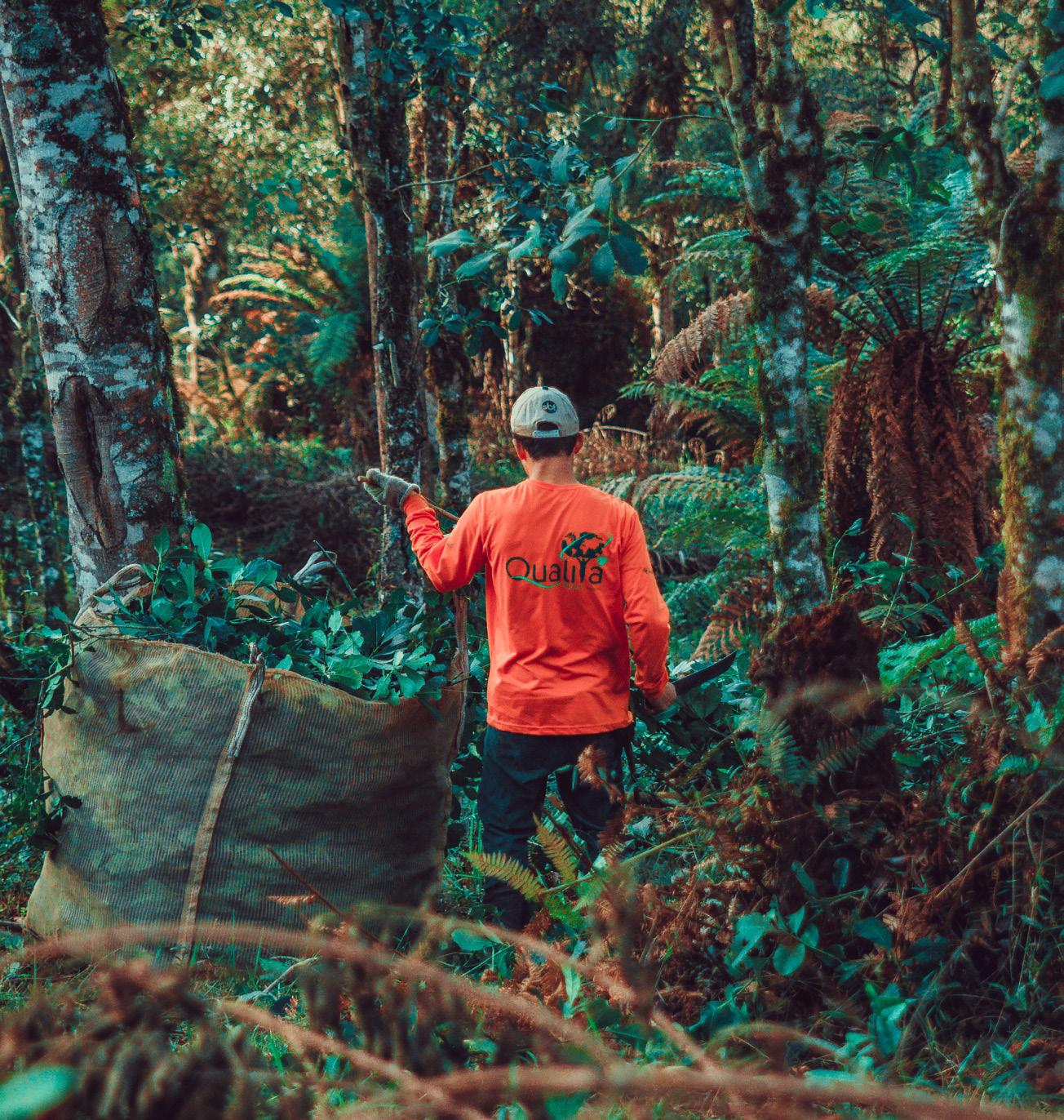
Constructing a new factory in 2017 made it possible to earn the organic certification their practices had long deserved. We’re happy to see that Demeter Biodynamic and Fair for Life have also recognized their care for people and planet.
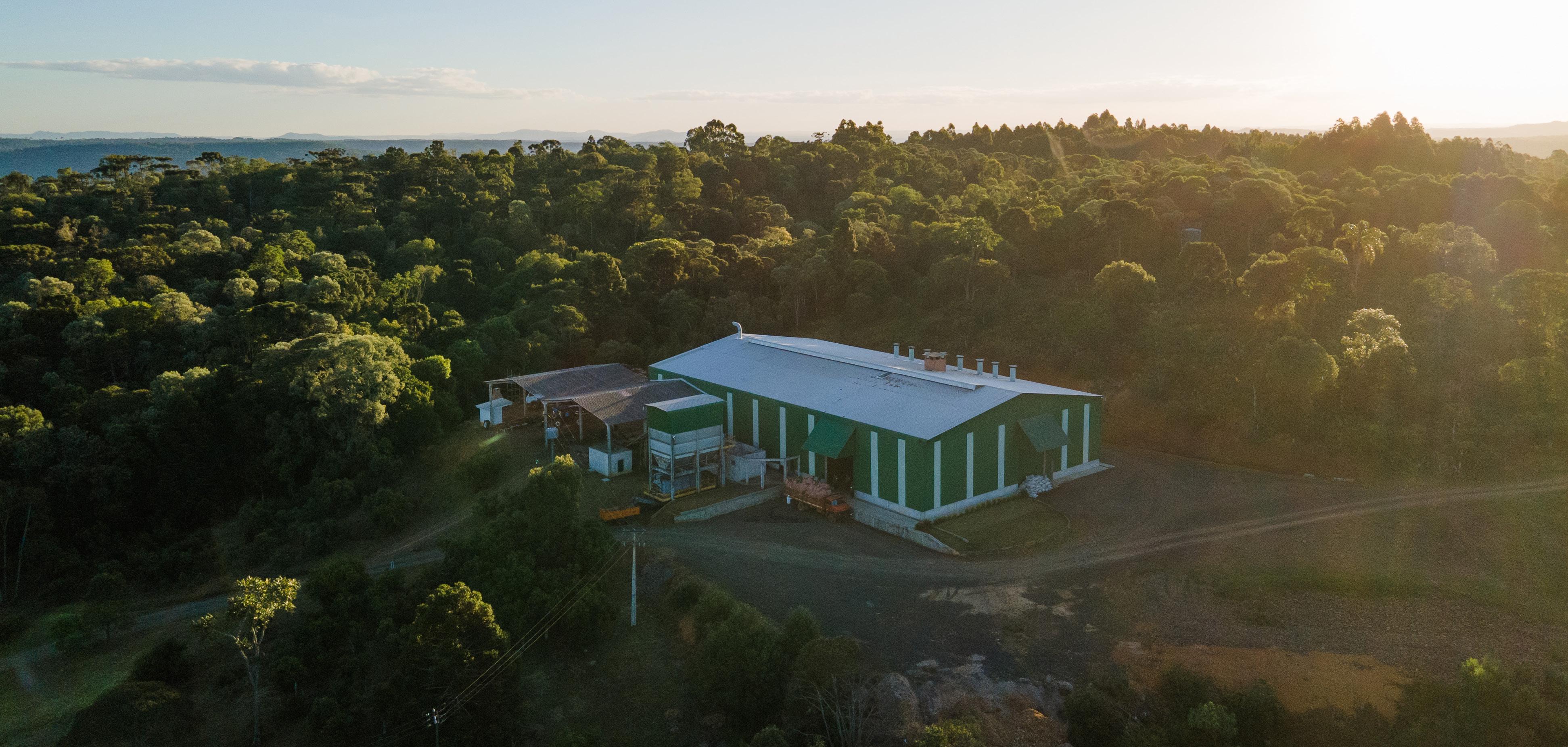
“We didn’t have the organic certification until 2017, when we built a brand-new factory. The transition was smooth because our practices were already aligned with the principles of organic certification.
We are convinced that by producing and offering an organic, healthy, and sustainable product, we are doing good for our planet. In addition, we are also very proud to be able to help our community. Today we have the Fair for Life certification that helps our employees and the city community in general.
We are passionate about what we do and are very proud to produce what we affectionately call ‘green gold’ with people all over the world. I believe that one of our greatest desires is to spread our culture through a high-quality product grown in a sustainable and organic way.”
Tradition, quality, respect, sustainability. Qualitá embodies our shared vision of sustainability, and we can think of no better place to end our world tour of tea and botanicals.
“All this is aligned with the care and affection that we have in the field and in our production, helping us have a product of the highest quality that pleases both the traditional mate drinker and our customers around the world.”
We are not alone on our journey to create goodness around our business. Our work often brings us into contact with other organizations – from NGOs to nonprofits, foundations to other tea companies – who are working to achieve similar goals.
Sustainability will always be a team effort, and none of us can solve these problems individually. We’re proud to join forces with like-minded organizations – adding our voice to the sustainability conversation.
B Corp Certification is a designation that a business ismeeting high standards of verified performance, accountability, and transparency on factors from employee benefits and charitable giving to supply chain practices and input materials.
To become a B Corporation, our business is inspected from top to bottom. Every aspect of our operation contributes to verification, including treatment of workers, engagement with communities, customer assistance, supplier relations, and environmental action. B Corp’s standards are legally binding, fully integrated into the operations of any certified business. It is this level of commitment that sets their certification apart.

The Ethical Tea Partnership (ETP) is a London-based nonprofit dedicated to creating a fairer, sustainable tea industry for tea workers, farmers, their families, and the environment. By focusing on three key areas – economics, equality, and environment –their interventions around the world have reached over one million people.

In Assam, India, we partnered with ETP and the India Tea Association to provide relief to teaproducing communities who were left behind by other aid efforts. By providing essentials like masks, surgical gloves, face shields, testing kits and oxygen concentrators, the project assisted over 70,000 households.
reNature utilizes the vast potential of Regenerative Agriculture in fighting today’s most pressing challenges, such as climate change, poverty, biodiversity loss, and food insecurity. They rethink the way farming is currently done, going beyond sustainability by designing and implementing diverse, regenerative systems on all scales. Together, we bring together knowledge about regenerative agriculture, impact monitoring, stakeholder engagement and more to make the business case for regenerative agriculture around the world.

The push to source environmentally responsible botanicals brings many like-minded organizations together. The Sustainable Spices Initiative is a global consortium of active companies and NGOs within the spices and herbs business.
All members of the Initiative are united in one shared goal: to strive for fully sustainable spice production and trade. With SSI bringing together a diverse group of organizations, we’re a part of the team making that goal a reality.

At Practical Action, they believe in the power of small to change the big picture. They work with communities to develop ingenious, lasting and locally owned solutions for agriculture, water and waste management, climate resilience and clean energy.

We work hand in hand with local communities, granting people living in poverty the right plans, tools and knowhow, put to work in effective partnerships to change the social and economic systems that keep people poor.
The American Botanical Council’s Sustainable Herbs Program started with donors, including 974 Kickstarter supporters, and a dream: to unite the healing potential of herbs with a commitment to heal the people and places that produce them.
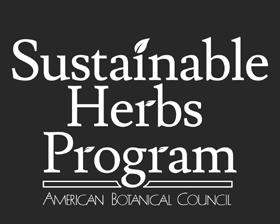
As underwriters of the Program, we’re proud to support their work understanding the lives of stakeholders in the herbs business. It takes all of us to make meaningful change, and the more people and companies are involved, the more potential for meaningful impact there is.
Mercy Corps is a global team of humanitarians working together on the front lines of today’s biggest crises to create a future of possibility, where everyone can prosper.
Their mission: to alleviate suffering, poverty, and oppression by helping people build secure, productive, and just communities. In more than 40+ countries around the world, over 5,400+ team members work side by side with people living through poverty, disaster, violent conflict, and the acute impacts of climate change.

